Akpabio: By Completing

Tinubu: We are Still FinancialRetooling System to Bring Relief to Nigerians
and rejigging Nigeria’s
Continued on page 5


Tinubu: We are Still FinancialRetooling System to Bring Relief to Nigerians
and rejigging Nigeria’s
Continued on page 5
Wale Igbintade in Lagos, Onyebuchi Ezigbo, and Alex Enumah in Abuja
As the crisis between the organised labour and the federal government over a new National Minimum Wage continues to brew, some Senior Advocates of Nigeria (SANs) have expressed divergent views on whether the proposed agreement between the two parties should be binding on state governments. In their separate interviews with THISDAY, all the senior lawyers agreed that the issue of minimum wage is under the Exclusive List on Item 34 of Part 1 of the Second Schedule to the 1999 Constitution, which provides that the National Assembly has the power to “prescribe a national minimum wage for the


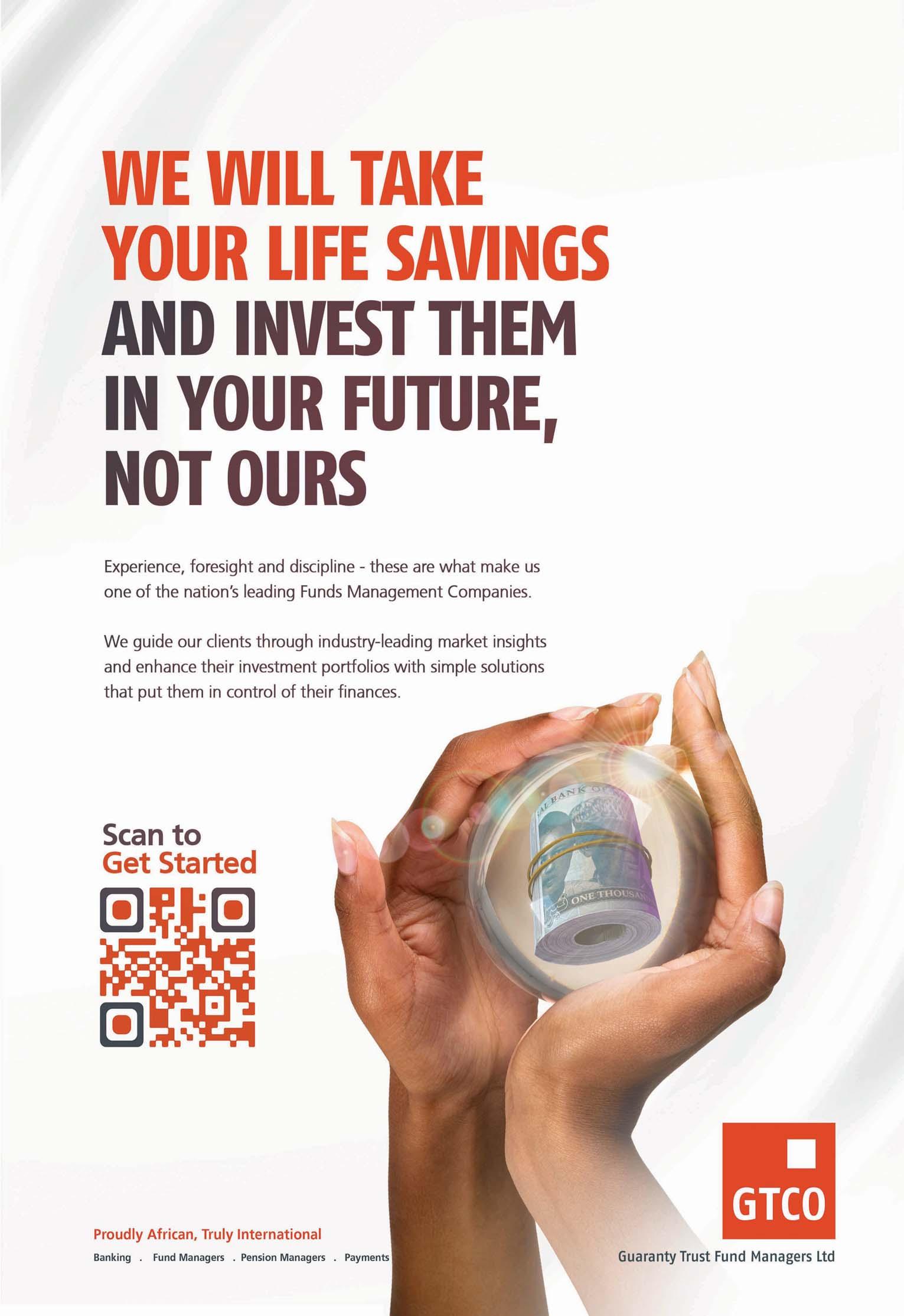


Alex Enumah in Abuja
MultiChoice Nigeria has resolved to appeal Friday’s ruling of the Competition and Consumer Protection Tribunal in Abuja, which awarded a N150 million
fine against it. The tribunal had fined MultiChoice Nigeria the sum of N150 million for disobeying its order.
The order had restrained the pay-TV company from increasing
its monthly subscription, pending the determination of the suit brought before it by an Abujabased lawyer, Festus Onifade. The tribunal had also ordered the pay-TV company to provide its Nigerian customers with a
one-month free subscription to its DStv and GOtv packages. But reacting to the judgment through a statement, MultiChoice disagreed with the ruling and vowed to file an appeal against it.
The statement partly reads: “MultiChoice Nigeria is aware of the recent ruling by the Competition and Consumer Protection Tribunal regarding its jurisdiction to entertain a price regulation matter.
“We disagree with the ruling, and will therefore file an appeal against the said ruling. “As the matter is currently sub-judice, we are restrained from making further comments,” the company added.
Federation or any part thereof.”
financial system to bring prosperity and relief to Nigerians, describing the country’s situation as very challenging.
Tinubu, who also stated that he had the people’s support and mandate to deliver good quality of life and a living environment for Nigerians, noted that his administration was prioritising people-focused development by providing essential infrastructure and amenities.
The president made this known yesterday at the inauguration of engineering infrastructure in Guzape District Lot II, Abuja, where he named two major roads after two literary giants – Professors Chinua Achebe and JP Clark.
President Tinubu, who commended the contractor handling the project, Gilmor Engineering Limited, emphasised that his commitment to providing infrastructure across the country is not for personal enrichment or aggrandisement.
According to him, "I stand here as President; I do not have a plot of land here (Guzape District). But I have the people’s support and the mandate to deliver a good quality of life and a living environment.
"That should be enough for all of us to share in the joy of commitment, dedication, perseverance, and the little gifts God has endowed us," he said.
The president commended the FCT Minister, Nyesom Wike, for seeing to the completion of major projects in Abuja.
He said: " It has been a very challenging time for us in the country. We are still retooling and rejigging our financial system to bring prosperity and relief to the people of this country.
"You have demonstrated the capacity to build a team, lead a team, and deliver on promises. I commend you, well done," he added.
President Tinubu also appealed to the District Head and people of Guzape to jettison litigation and give room for compensation.
According to him, "To all of you here, to the District Head of Guzape, and the representatives, litigation is not the answer. Compensation is the answer.
"Development that is focused on the people for economic prosperity and benefits is what we should pursue.
"Of what value is a swathe of land
feat, noting that a simple residence for Nigeria’s Vice President could not be completed by successive administrations until after 14 years.
Akpabio came hard on those who were skeptical of the completion of the refinery, describing them as dream killers.
Akpabio, who led the leadership of the 10th Senate on a tour of the refinery in Lagos, said detractors of the refinery had all been silenced and that indeed, previous governments had been put to shame with the completion of the project.
He promised that the National Assembly would give it what it takes to protect the project, describing it as one project that Nigeria and indeed Africa should take the ownership of and protect from jealousy.
He said: “They told us in Abuja that Dangote Refinery is a farce but we have come here and see for ourselves that the refinery is alive and running. Dangote has put to shame a lot of people. They are wondering how it will be possible for a single
that is blocked by hills and rocks, and that is inaccessible. Let us talk to our people and come together to help build Nigeria".
Also speaking while inaugurating the road, the president acceded to the request of Wike for major roads in Guzape District to be named after two literary giants - Chinua Achebe and JP Clark.
President Tinubu said: "Minister for FCT, Chinua Achebe and JP Clark roads are hereby commissioned. We accept your request."
Earlier in his remarks, Minister of FCT, Wike, explained that the contract initially awarded in 2003 at the cost of N14 billion was divided into Lots 1 and 2 to Messrs Dantata & Sawoe Construction Company Nigeria Limited and Messrs Gilmor Engineering Limited.
"Dantata had left the site for a long time. We had to bring them back after the President approved a memorandum to that effect," Wike said.
The minister disclosed that the development of the district, which covers 32km of road, had been fraught with litigation, which, however, did not deter the progress of the project.
He said shortly before the present administration assumed office, the cost of the project was revised to N18.17 billion.
Wike commended the President for not abandoning the project owing to his belief in government as a continuum.
"Since I assumed office as FCT Minister in August 2023, you have never interfered with our work. We are sincerely happy that you gave us the free hand to work," he said.
Wike, who appealed to the President to name major roads in Guzape District after literary giants, Chinua Achebe and JP Clark, hinted that the ‘diplomatic area’ in the district would be completed within one year.
In a project overview, the Executive Secretary, FCDA, Shehu Hadi Ahmad said the area being developed, Guzape District Lot II, is an urban fringe area covering 620 hectares, with 129 hectares encumbered by village settlements.
He said the entire district, Lot 1 and Lot 2, was designed to provide residential, commercial, and recreational facilities covering an entire area of 1,070 hectares of land.
individual to accomplish what a whole nation could not accomplish; what 240 million people could not maintain; what a continent could not do and then one person buil a 650,000bpd project.
“They keep wondering how one person can succeed where nations have failed; where the continent failed. But Dangote has done it. It is highly commendable.
“We came to see the refinery because we in the current Senate believe in the Nigerian dream. We didn’t come as a doubting Thomas but we came because we believe in the project; we came to rekindle the hope of Nigerians and the Nigerians' can-do spirit.”
Akpabio stated that Nigeria couldn't make her refineries function in Kaduna, Port Harcourt, Warri, but that Dangote and his team have proven that it is possible to dream and achieve it in Nigeria.”
He said the shame that came with the discovery of oil in Nigeria in 1958 has been removed by Dangote,
However, Prof. Mike Ozekhome (SAN), Dr. Joseph Nwobike (SAN), Ebun Adegboruwa (SAN), Reverend John Baiyesea (SAN), Mallam Ahmed Raji (SAN) and Dayo Akinlaja (SAN), argued that Nigeria is a federation, where the different federating units should negotiate separately based on their individual financial capacities.
But human rights lawyer, Mr. Femi Falana (SAN), a former Chairman of the Nigerian Bar Association (NBA), Abuja Branch, Mr. Moses Ebute (SAN) and Abiodun Olatunji (SAN), insisted that by virtue of Section 4 of the Constitution, the National Assembly is exclusively empowered to legislate on National Minimum Wage in Nigeria.
This is as the Nigeria Labour Congress (NLC) and the Trade Union Congress (TUC) described the claim by the Nigeria Governors’ Forum (NGF) that most of the states cannot pay a minimum wage of N60,000 as an act of bad faith.
Oyo State Governor, Seyi Makinde, however, insisted that the state governments should be allowed to sort the issues out with the organised labour.
“If you ask for my position on this issue, I will say the states should be left to sort themselves out with the labour," Makinde told THISDAY last night.
According to Ozekhome, the power given to the National Assembly by the 1999 Constitution “is somewhat curious, as one would have thought that, given our federal as against unitary structure under the self-same Constitution, the National Assembly ought to only legislate for the federal workers, while states did the same for theirs. But that is clearly not the case.”
The constitutional lawyer stated that until the Constitution is amended, the National Assembly possesses the exclusive capacity to enact a national minimum wage for the whole country or any part thereof - which, obviously includes the states.
He, however, argued that in practice, the states have always prescribed their own minimum wages as dictated by their individual financial capacities, adding that the Edo State Government only just recently pegged theirs at N70,000.
On his part, Adegboruwa noted that Section 4 of the Constitution
alluding to a report that India does not have oil but his refineries from where the country exports refined products.
“The inability of the nation to refine its oil has brought untold hardship on Nigerians so much so that the Belgian government recently banned the exportation of dirty and condemned fuel to West African countries just because we can’t refine our own products.”
Describing the refinery as quite unbelievable, Akpabio said the Senate and the entire National Assembly would come up with robust legislation that would protect the project and others like it.
He stated: “Mr. Dangote, I pity you a lot because even your friends will envy you simply because they will keep wondering how can you succeed when nations, and continents have failed. Now that we have seen for ourselves, we are here to announce our own endorsement of this major project. It is also shocking to see that we produce sufficient fertilisers for
provides that only the National Assembly has the powers to make laws relating to issues of national minimum wage.
"However, we run a federation, which consists of the federal government, the state government and the local government. When laws are made by the National Assembly, that applies to federal institutions and employees. So, it would be difficult for instance, for the National Assembly to make a law prescribing minimum wage for Lagos State, Kano State or for Rivers State.
According to him, when the National Assembly makes an Act such as the National Minimum Wage Act, the state Houses of Assembly should work to also implement and incorporate that Act into their own laws for the purpose of enforcement.
He insisted that the federal government is not competent to negotiate on behalf of the states on minimum wage for workers.
Also contributing, Nwobike said the state governments being a legal entity are independent, and are entitled to enter into negotiations with their respective labour unions before enforceable agreements can be reached or implied.
He said: "There is no agreement between the organised labour and the federal government which binds the state governments. The state governments are independent legal entities which are entitled to enter into negotiations with their respective labour unions before enforceable agreements can be reached or implied. That is the law.”
Also speaking, Reverend John Baiyesea (SAN) argued that rich states like Lagos, Kano, Rivers, should not be expected to pay workers the same amount as Kwara, Ekiti, Niger, and Zamfara states, which are considered not to be rich.
"Therefore, negotiations ought to be from state to state based on capacities and capabilities of each state,” he said.
According to him, the National Assembly passed a National Minimum Wage Act of 2019, which fixed the minimum wage at N30,000 but up to 10 states have not been able to pay the N30,000.
Similarly, Dayo Akinlaja (SAN) also argued that states should negotiate their own minimum wage.
Nigeria and enough to be exported.
"As I said we will do our report and we will speak to Mr President to put a stop to fertiliser import to Nigeria. You will hear from us soon,” he added.
Also speaking, Lagos State governor, Babajide Sanwo-Olu, stated that it is a privilege that the refinery happened in "our time, our state and our country.”
According to the governor, “people talk about dreams, but only few can make it happen. Dangote has put Lagos State and the whole of Nigeria on the world map of excellence.
"I am happy the Senate came to see for themselves; Dangote was not ready to rest after successfully building the largest cement factory chain in Africa, second largest sugar refinery in the world. With investment like this, I can assure you that we are on the right path to meet the projected GDP of $1trillion by 2030.
"You have the key to the city, I have given you a long time ago and
"It stands to reason and logic that since the states are not equally endowed in terms of resources and wherewithal, no one state should be compelled to pay the same minimum wage with another or the federal government. It has to be understood that this is one of the touchstones that fundamentally define and render what we practice to be at best a pseudo federal system," he said.
According to him, "if there is any area that the Constitution has to be promptly tinkered with, this national minimum wage with its attendant debacle is a veritable one,” he added.
For Mallam Ahmed Raji (SAN), the federating units should negotiate their minimum wage because of the differences in their financial capacities.
According to him, the federal government should not negotiate for the states, adding that “in a federal system with a lot of distinct peculiarities in the states, it appears a bit odd.”
"The states are not equally endowed. A federal system promotes healthy competition among the states. Minimum wage is one area of competition,” he added.
However, human rights lawyer, Falana, insisted that by virtue of Section 4 of the Constitution, the National Assembly is exclusively empowered to legislate on National Minimum Wage in Nigeria.
On his part, Ebute noted that though Nigeria is a federation, the country does not have the attributes of other countries running a federation.
"The federating states in Nigeria were created by statute(s), unlike other countries where sovereign states came together to form a federation.
"Therefore, the issue of minimum wage cannot be resolved or settled by individual states. It is called national minimum wage and not state minimum wage,” he said.
Another senior lawyer, Olatunji argued that governors are also involved in the negotiation to ensure that their interests are protected.
"Once the national minimum wage is enacted into law, it is binding on all states. This means no state can legally pay below the minimum wage. However, states with better financial capacity are at liberty to pay above the minimum wage,” Olatunji added.
I am happy you are using it very well," Governor Sanwo-Olu stated.
In his remarks, Dangote explained that the "visit could not have come at a more auspicious time than now, just as the company is in the process of bringing the various units of this complex integrated refining processes on stream, an eagerly awaited move."
"The refinery will help boost Nigeria’s economic growth, with the creation of thousands of direct and indirect jobs. During the construction stage, it supported over 150,000 jobs, made up of mostly Nigerians. These Nigerians in the process acquired various skills that are still useful in other construction projects.
"The capacity of the refinery is enough to satisfy domestic demands for refined products. The refinery will export about 50 per cent of its production thereby generating foreign exchange for the country. It will lead to growth in adjacent sectors such as logistics, shipping, engineering, and servicing.
"The refinery has the requisite
NLC, TUC Tackle Govs, Accuse State Chief Executives of Acting in Bad Faith
Meanwhile, the NLC and TUC have described the governors’ declaration that most of them cannot afford to pay N60,000 as minimum wage as "an act of bad faith.” NLC in a statement issued yesterday faulted the claim of poor revenue by the governors, stating that allocations from the Federation Account (FAAC) have since moved from N700 billion to N1.2 trillion, making the state governments extremely rich at the expense of the people.
The statement signed by the NLC's Head of Information and Public Affair, Mr. Benson Upah argued that the states will be able to pay higher minimum wage if they reduce "the high cost of governance, minimise corruption as well as prioritise the welfare of workers".
"We do believe the governors have acted in bad faith. It is unheard of for such a statement to be issued to the world in the middle of an ongoing negotiation. It is certainly in bad taste.
"As for the veracity of their claim, nothing can be further from the truth as FAAC allocations have since moved from N700 billion to N1.2 trillion, making the governments extremely rich at the expense of the people."
"We are not fixated with figures but value. Those who argue that moving the national minimum wage from N30,000 to N60,000 is sufficiently good enough miss the point. In 2019, when N30,000 became the minimum, N300 exchanged for $1 (effectively making the minimum wage an equivalent of $100 or thereabout) while inflation rate was 11.40.
"At the moment the exchange rate is at N1,600 to $1 while inflation hovers at 33.7 per cent (40 per cent for food). This puts the value of the minimum wage at $37.5 for a family of six. This is happening at a time costs of everything rose by more than 400 per cent as a result of the removal of fuel subsidy. This is extremely bad news for the poor," it said.
capacity to provide energy security both by providing a ready home for our crude and in ensuring steady availability of petroleum products for all. Nigerians will also get to partake in the financial returns once we list the Refinery on the NGX.
"We are thus making an important contribution to this administration’s plan to grow our GDP to $1 trillion.
"Our group is at the vanguard of job creation and employment generation in Nigeria. We are the biggest employer of labour after the federal government. Dangote Cement sustains about 70,000 (direct and indirect jobs across Africa, while the refinery, petroleum chemical complex and fertiliser will be able to create over 150,000 direct and indirect jobs.
"We have remained one of the biggest contributors to government coffers as our three subsidiaries, Dangote Cement, Dangote Sugar Refinery and NASCON
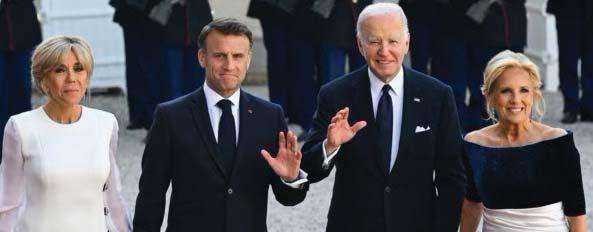
Let's
Chuks Okocha in Abuja
The presidential candidate of the Labour Party (LP) in the 2023 general election, Mr. Peter Obi, has hailed South Africa’s election as a shining example while describing Nigeria’s 2023 polls as ‘shameful’.
Obi stated this in a post via his verified X handle yesterday.
This is as the National Chairman of LP, Mr. Julius Abure, called members of the party to learn from their history and trajectory in order to avoid the mistakes encountered during the 2023 general election, stressing that learning from the mistakes would help the party to plan better for 2027.
Obi said the disparities in the electoral procedures of both nations were regrettable, adding that it reflected Nigeria’s ongoing struggles with democratic governance.
He noted that with about 60 per cent voter turnout, over 90 per cent of polling stations opening on time, and allowing diaspora voting, the results and updates were provided in real-time without any technical glitches during the election.
He wrote: “The outcome of the recent South African election results remains a shining example
of what a transparent and efficient democratic electoral process should look like.
“With about 60 per cent voter turnout, over 90 per cent of polling stations opening on time, and allowing diaspora voting, the results and updates were provided in real-time without any technical glitches during the election.
“This demonstrated the robustness and transparency of their system. The seamless online dissemination of results further highlights their commitment to democratic principles and technological advancement.
“This is in stark contrast to the ‘show of shame’ that the giant of Africa, Nigeria, presented to the world in 2023. Nigeria’s 2023 election, with less than 30 per cent voter turnout and over 60 per cent of polling stations starting late, no diaspora voting, and plagued by allegations of fraud and widespread irregularities, experienced all forms of glitches despite enormous expenditure to the tune of about a billion dollars (direct allocation of 313 billion and donor agencies’ support).
“The process has been widely discredited. The differences between
the two countries’ electoral processes are both stark and lamentable. South Africa’s Election Results Centre, with its state-of-the-art electronic board, showcased results with unparalleled precision and speed.
“Meanwhile, Nigeria’s electoral process is mired in controversy and lacks transparency. This glaring juxtaposition is a painful reminder of our country’s ongoing struggles with democratic governance.
“It underscores the urgent need for comprehensive electoral reforms to ensure that our elections are free, fair, and credible. We must learn from South Africa’s example and strive to build a system that restores the people’s faith in our democracy.
“The time for action is now, and we cannot afford to delay any longer in addressing these critical issues for a new Nigeria is Possible!”
Let's Avoid Mistakes of 2023, Abure Tells Labour Party Members In another development, the National Chairman of LP, Abure, has called members of the party to learn from their history and trajectory in order to avoid the mistakes encountered during the 2023 general election.
Abure said this when he inaugurated the newly-constituted Mobilisation and Integration Directorate of the party in Abuja.
One of the terms of reference of the directorate was to coordinate the registration of all members of the OBIDIENT family and integrate them fully into the structure of the party.
Reacting to the LP’s initial plan to create the Directorate of the OBIDIENT Affairs, Obi had stated that the OBIDENT Movement was beyond any political party, explaining that its membership cuts across different political parties and cannot be domiciled in one political party.
But inaugurating the directorate, which Abure renamed Directorate of Mobilisation and Integration, the LP national chairman charged it to effectively assimilate willing members of the OBIDIENT family to the party and ensure that they are financial members of the party.
According to Abure, "it is my view that if the party structure was stronger in 2023 during the general election, it would have probably been able to defend a lot of our stolen votes which would have made Peter Obi the President of
Nigeria.
"We have seen instances where weak and unpopular candidates have been delivered or more succinctly win elections by strong party structure. On the other hand, there are instances in which extremely popular and visible candidates have lost elections due to a weak party structure.
“It is on this basis that we intend to strengthen the structure of the party, make it formidable, rebuild the party and begin to identify strong, passionate and dedicated party members that we can use in future as agents and defenders of the party, who will be able to stand the time to advocate and stand for the party in future elections.
"It is my view and opinion that the time to begin is now. I think that the fire brigade approach adopted by the party in the 2023
general election can obviously be avoided. I believe strongly that if we start planning from now for the 2027 general election, it will be better for the party and for all those who truly and really want a New Nigeria.
Abure said that the party was also not unmindful of the very nature of the OBIDIENT movement but "we concluded that this communication gap, no doubt will need to be addressed."
He said: "In view of the controversies and misconceptions which followed the publication of the names and setting up of the Directorate of the OBIDIENT affairs, we have decided to rename it as the Directorate of Mobilisation and Integration."
Abure said with the renaming of the directorate, there was no gainsaying that the scope of the directorate had been expanded.
Chinedu Eze
Chuks Okocha in Abuja
Former President of the Senate, Dr. Bukola Saraki has hailed the Supreme Court’s judgement, which overturned the Federal High Court's 2018 decision regarding an alleged N3.5 billion fraud case against Melrose General Services Limited.
Saraki said the judgment had vindicated his earlier stance that the case was politically-motivated and a veiled attempt to witch-hunt him because he emerged as President of the Senate against the wishes of certain forces during former President Muhammadu Buhari’s administration.
The former Senate President stated this at the weekend in a statement signed by his Head of Media, Alhaji Yusuph Olaniyonu, and made available to journalists in Abuja
after the Supreme Court’s judgment.
The Economic and Financial Crimes Commission (EFCC) had on April 27, 2018, secured judgment for the final forfeiture of N1.4 billion, which it claimed a firm, Melrose General Services Limited, obtained from the Nigeria Governors’ Forum (NGF) through false claims.
Melrose was allegedly linked to the then Senate President, Saraki, who was facing a political battle with some highly placed personalities within the Buhari-led All Progressives Congress (APC) government. Dissatisfied with the verdict of Justice Cecilia Olatoregun, and the Court of Appeal, which in May 2019, resolved the four contentious issues in favour of the EFCC, Melrose General Services approached the Supreme Court for redress, asking it to set
aside the pronouncement of the lower courts.
Delivering the judgment on Friday, June 7, the Supreme Court panel led by Justice Akomaye Agim (SC 1519/2019) set aside the judgments of the lower courts and ruled in favour of the appellant, Melrose General Services.
Reacting to the judgment on his handle on the social media platform, X, Saraki said the ruling had revealed the truth and affirms his earlier position of innocence.
The former chairman of the NGF stated that the legal suit was a proxy war, aimed at persecuting him, undermining his political career, and tarnishing his reputation.
“As much as this case was between the EFCC and Melrose General Services Limited, it was a
proxy war, with Melrose serving as a mere pawn in a larger scheme to victimise and persecute me. It was always clear that this case was a thinly veiled attempt by the Buhari’s administration to weaponise the legal system for political gain.
“The allegations of ‘Paris Club Fraud’ were nothing more than a smokescreen designed to weaken the institution of my office, undermine my political career, and tarnish my reputation through spurious accusations similar to the Code of Conduct Tribunal (CCT), which also acquitted me of all charges.
“As I said in my first appearance at the CCT, this is a politically motivated case. The case was trumped up in the first instance because I emerged as the President of the Senate against the wishes of certain forces.
Nigeria’s major carrier, Air Peace, has announced the available flights for its Lagos-London-Lagos route that are bookable between now and the end of March 2025.
This means that travellers who wish to embark on the journey between now and March 2025 can book their flights today.
Air Peace’s London route, which is operated by its luxurious Boeing 777 aircraft, began on March 30, 2024, and has quickly become popular among business and leisure travelers.
Air Peace said passengers will enjoy premium seating, intercontinental meals, generous luggage allowances, and the distinctive ‘Flygerian’ experience.
"We are thrilled to inform the general public and our esteemed customers that they can now book flights for travel up to March 2025 on our London route. This extension is perfect for those planning to travel between Nigeria and London this festive season. With a variety of
benefits and packages, Air Peace ensures that passengers will enjoy bespoke comfort and safety,” the airline said in a statement signed by its management.
Air Peace said this extended availability is aimed at providing more options and convenience for passengers, “reinforcing Air Peace's commitment to delivering exceptional service and seamless connectivity.”
“Additionally, the recent announcement of summer promo allows passengers in Nigeria to connect to London from all Air Peace domestic destinations, and London passengers to connect to various locations in Nigeria via Lagos,” the airline added.
Air Peace leads Nigeria’s aviation industry with a current network of 21 domestic routes, 10 regional routes, and seven international destinations.
The airline's expanding fleet includes over 30 aircraft, including five brand new Embraer 195-E2s and a recent firm order for five new Embraer 175s.


L-R: Katsina State Deputy Governor, Hon Farouk Jobe; Governor Dikko
The battle for the control of the soul of the Peoples Democratic Party (PDP) has again been shifted as the National Working Committee (NWC) of the party has moved its planned National Executive Committee (NEC) meeting to elect a new replacement for the vacant office of the national chairman from August to September, citing the Hajj where critical stakeholders of the party will be away to observe.
Under the new adjustment, the NEC meeting, earlier scheduled for August 18, 2024, will now take place on September 12, 2024.
The NEC of the party had on April 18 shifted the election of the new national chairman to August 18.
The election is to fill the vacancy created by the suspension of the former National Chairman, Dr. Iyorchia Ayu who was suspended by his ward in Gboko, Benue State.
In the April 18 NEC meeting, the
party also directed that congresses should take place in all the wards, local governments and states where the tenure of the executives had expired.
The congresses were scheduled to lead to the election of a substantive national chairman of the party
But in a letter sighted by THISDAY, which was signed by the party's National Organising Secretary, Umar Bature, the party said due to the coming Muslim festival, the planned NEC meeting and state congresses will no longer take place on August 18 as earlier scheduled.
The letter read: "You may please recall our earlier letter dated Friday, April 19, 2024 in which we informed you of the National Executive Committee's (NEC's) approved timetable and schedule of activities for the 2024 party congresses for the purpose of electing new party executives at the appropriate levels.
students involved in the act were between the ages of 14 and 17.
The federal government yesterday warned hoteliers across the country not to harbour teenagers and underage girls in their facilities to avoid being sanctioned.
The warning came as the government doled out N100 million grants to 200 Nigerian youths selected from across the country to boost their potential for economic development.
The Minister of Women Affairs, Uju Kennedy-Ohanenye, read the riot act yesterday at the ‘Unlock Training and Grants’ ceremony in Abuja.
The programme, which saw 200 young entrepreneurs receive N100 million, was organised by the Senior Special Assistant to the President on Technical, Vocational and Entrepreneurship Education, Abiola Arogundade.
In January 2023, some students of Federal Government College in Ijanikin, Lagos, were caught after absconding from school to lodge female classmates in hotels for sex romps.
The students, who were all boarding school students, had on different occasions jumped the school’s fence with their female counterparts and stayed out of school for days.
It was also gathered that the
Similarly, in April 2022, a video clip of a 15-year-old boy who was accosted while trying to lodge two girls and another guy in a hotel room went viral on social media.
The teenage schoolgirls, however, took to their heels when the voice behind the camera attempted to probe them on their mission.
However, Kennedy-Ohanenye, has vowed that it would no longer be business-as-usual.
The minister disclosed that hoteliers, especially in the Federal Capital Territory (FCT), have been directed to mount a signpost outside their hotels warning prospective clients not to lodge any underage girls in their premises.
She also extended the riot act to proprietors of schools across the country, warning that they should ensure no student would be bullied by either teachers or students.
She said, “Nigeria must be better. From June 20, we have directed hotels to put a sign outside from the Ministry of Women. No lodging of underage girls. (Otherwise) what happened in Niger State will be an understatement of what will happen in the FCT and I mean it.
"This is to formally inform you that the National Working Committee (NWC), on behalf of the National Executive Committee (NEC), at its 587th meeting held on Tuesday, June 4, 2024 approved the extension of the Membership drive to now end on Thursday, June 27, 2024."
The NWC, on behalf of the NEC, also approved and adjusted the timetable and schedule of activities for the 2024 congresses.
Under the adjustment, according to the letter, ward congresses to elect ward executives will now take place on Saturday, July 27, 2024, while the appeal panels to hear the appeals arising from the ward congresses will sit on August 2, 2024.
Similarly, the local government elections to elect local government executives will take place on August 10, 2024 while the appeal
panels will sit on August 16. The NWC also approved that state congresses to elect state executive committees will hold August 31 while the appeal committee will hear the appeals arising from the elections on September 5.
Consequently, the letter added that the new NEC meeting would take place on September 12.
The letter added: "This adjustment is necessitated by the Holy period of Hajj in which some of our stakeholders will be away to observe.
"You are, therefore, by this correspondence directed to be guided accordingly. While thanking you for your commitment to the party, please accept the assurances of the NWC's highest regards," the letter stated.
The letter was copied the Deputy National Chairman
(South), Ambassador Taofeek Arapaja; National Vice Chairman, Ajisafe Kamoru Toyese; National Secretary, Senator Samuel Anyanwu; and the National Legal Adviser, Kamaldeen Adeyemi Ajibade (SAN).
The NWC had in April 19, in line with the directives of the NEC, released the guidelines for the congresses into the wards, local governments and states.
The wards, local governments and states congresses is expected to take place in 26 states out of the 36 states as well as the Federal Capital Territory (FCT).
A separate letter obtained by THISDAY, which was also signed by the National Organising Secretary of the party, Bature, showed that the dates and schedule of the primary elections should commence in the affected states on April 22. The states
are: Edo, Akwa Ibom, Bayelsa, Cross River, Delta, Rivers, Kano, Kaduna, Katsina, Sokoto, Jigawa, FCT, Niger, Benue, Plateau, Taraba, Bauchi, Gombe, Enugu, Imo, Abia, Ogun, Ondo, Ekiti, Ebonyi and Anambra. According to the letter, between May 1 and 31, the party would commence membership drive in the affected states to boost the membership strength of the PDP in those states.
Also, the letter further disclose that the exercise was to “enable all old and new members register in their respective wards and for a periodic membership assessment.” Between June 3 to June 17, 2024, there will be sale of nomination forms, including ad-hoc forms, in clearly identified states.
The last day for the submission of all duly completed forms by aspirants is slated for June 21, 2024 in the mentioned states.
Ahmad Sorondinki in Kano.
Leader of Kwankwasiyya Movement and the presidential candidate of the New Nigeria Peoples Party (NNPP), Rabiu Musa Kwankwaso, has accused the opposition in Kano State of distracting the Governor Abba Yusuf-led government for one year. This is as Governor Yusuf yesterday declared a state of emergency on education as part of the state government’s effort to checkmate the increasing number of out-of-school children in the state, which he said currently stands at 989,234.
Kwankwaso reacted to the development while responding to insinuations over the declaration of the state of emergency on education in Kano State.
He noted that enemies started distracting the government of the state right from when Governor Yusuf won the governorship last year.
The NNPP leader said even
when there was no need to challenge the election in court, which according to him, the NNPP won clearly, the enemies were bent on snatching victory through the courts.
He said: “Let me start by congratulating him on this historic day, the day the governor is declaring a state of emergency on education. For those who are aware that the governor has been working from day one you can see his footprints everywhere across the state.
“Despite the fact that the governor was distracted for about one year. Immediately after election, enemies of the state took him to court – tribunal, Appeal Court to Supreme Court. We have seen what happened even when they knew that there is no need to go to any court or tribunal. Everybody knew that he won his election.
“Even the enemies were saying that they wanted to take it by force because they believe they have a government.
Despite all that, the governor has been working and obstacles after obstacles, we don’t know what is happening and what has happened in this state but the governor is moving.
“In fact, that reminds me of our situation during my second term when two months after my swearing in as governor, we had Boko Haram attacks in mosques, attacks in markets, police stations, schools and everywhere we were focused and ensured that we were not distracted.”
Meanwhile, Governor Yusuf has declared a state of emergency on education as part of the state government’s effort to address the increasing number of outof-school children in the state, which he said currently stands at 989,234.
The governor made the declaration during a grand ceremony held at government House in Kano. He said the decision to declare the state of emergency on education became necessary
due to the decay of the quality of education and infrastructure in the sector.
"A state of emergency, as declared today, is an extraordinary legal measure that allows us to take some bold steps to address these critical challenges swiftly and effectively. It is a call to action for all stakeholders—government, educators, parents, the private sector and the community at large—to unite and prioritise the revitalisation of our education system."
Governor Yusuf lamented the problem of out-of-school children in the state, which he said is threatening to rob an entire generation of their right to education and a brighter future.
"Our beloved State is witnessing an alarming proliferation of out-of-school children, (with the current figure standing at 989,234 children of both genders), a situation that threatens to rob an entire generation of their right to education and a brighter future."


Ogheneuvde Ohwovoriole in Abuja
No fewer than 20 people have been reported killed in one of a series of attacks by suspected Boko Haram terrorists that began on Thursday in Shiroro Local Government Area (LGA) of Niger State
The Senator representing Niger East district, Sani Musa, has described the gruesome murder of the 20 harmless villagers as barbaric, heartless and inhuman.
“This is my darkest moment as the representative of the people of Niger East Senatorial district. I am very helpless at the moment. My people, including men, women and In a particular incident in Bassa, a town in the area, the terrorists beheaded 10 of the victims, all of whom were young men.
The witnesses to the horror, who declined to give their names out of fear of the terrorists, said the young men were beheaded for refusing to join the Boko Haram terror group.
Providing more grisly details, according to The Premium Times, one of the residents who fled the community, said the terrorists made members of the community hold the severed heads, while they took pictures and made video recordings.
They said the terrorists stormed the village in broad daylight on Thursday, assembled the residents and randomly selected 20 adults whom they shot at close range.
“They told us that anybody who refused to be recruited into their fold would be given a similar treatment. They said they used the 10 beheaded youths as an example.
“They said they had warned us that everybody should vacate the community but that we refused. It’s either we join them or we leave the community,” a resident said.
Other villages attacked between Thursday and Friday include Lanta, Kasimani, Unguwan-Madi and Makuda.
In all the villages, the terrorists reportedly set houses on fire and killed domestic animals.
Two months ago, suspected Boko Haram terrorists had also beheaded nine people in Allawa in the same Shiroro LGA, after the terrorists dislodged soldiers camped in the community.
The nine victims were said to have defied warnings of the terrorists that villagers who fled during the attack on the military camp should not return.
“The men went back to the community with their wives to get some foodstuffs when they were rounded up and beheaded. They (the terrorists) asked the women to send the message to the people that anybody who returned to the community would suffer the same fate,” a resident said.
The state government and the police had not issued a statement on the latest massacre as of the time of this report.
However, the Senator representing Niger East district, Sani Musa, described the gruesome murder of the 20 harmless villagers as barbaric, heartless and inhuman, saying that: “My heart bleeds for them.
“This is my darkest moment as the representative of the people of Niger East Senatorial district. I
Juliet Akoje in Abuja
Leader of the opposition in the House of Representatives, Hon. Kingsley Chinda, has said a N70,000 minimum cannot take any Nigerian worker home, insisting that a living wage should be the ultimate goal of the government.
Chinda made this disclosure in a chat with journalists in Abuja at the weekend.
He said: “Well first, I would tell you that as a caucus, we don’t believe in minimum wage.
“Incidentally, you even asked for minimum wage. What we have been calling for is a living wage for Nigerians and for Nigerian workers.
“And we believe that the question you also asked concerning the issues of corruption, the issues of the zeal to work for the state will depend on some of these things.
“Pay Nigerians a living wage, corruption will be reduced. Pay Nigerians a living wage, you will ignite the spirit to work for the nation.
“But pay minimum wage, I don’t think it will solve the problem. So, the position of governors that they are not going to pay more than 70,000 or so a month to Nigerians; it will not help this country; it will not solve our problem, let us be realistic.
“Let us look at a living wage that is affordable by the government and if the executive arm is sincere, see
it with labour. Talk to Nigerians, we will all see what is practicable. Nigerians are angry because they feel that there is so much wastage.
“I have even seen some publishing humongous figures as salaries of members of parliament and all that. Those are things that will make any Nigerian angry. And then when you talk about N70,000; how can you survive?
“I think our laws recognise that a Nigerian should have one or two wives minimum or one wife and four children. You have one wife; you have four children. Will 70,000 take care of the welfare of four children, take care of your rent, transport and all that? How much is a bag of rice?
“So, please let us even leave the issue of minimum wage. Let’s talk about the living wage. So, as a caucus, we support the living wage for Nigerians without compromise. I can even tell you to take it to the bank, not just the minority caucus, the entire House, including the Speaker.
“Because I recall when the Speaker of the HoR (House of Representatives) was in the Villa; his brief remark was that we require a living wage for Nigerians.
“So, we solidly support labour in that. The only area we have also urged labour is that in cause of agitating for that, let us go by the rules. Two wrongs cannot make a right,” Chinda explained.
Adedayo Akinwale in Abuja LuZressives Governors’ Forum said it Zave abandoned their farms.
Against this background, Lukman called on patriotic Nigerians who are ready to return to the trenches of democratic struggles to resume mobilisation and negotiations to move Nigerian democracy b eyond the current lethargic state.
The APC chieftain noted that negotiations to produce an alternative
political platform, which could move Nigerian democracy forward must prioritise the development of a functional political party structure based on ability to answer some of these practical questions should be the consideration.
Lukman noted: “Only those patriotic Nigerians who are ready to return to the trenches of democratic struggles to resume mobilisation and negotiations to move Nigerian democracy beyond the current
lethargic state, can begin to provide answers to these practical questions.
“Patriotic Nigerians and democrats must resume the business of national mobilisation to produce an alternative democratic platform to APC and all the charades of registered political parties. We must summon the courage and believe in the power of possibility.
“Just like we succeeded in pushing the military back to the barracks and defeating the PDP in 2015, it is possible to create a politically viable and truly
popular democratically alternative platform that can put the APC in its rightful place and overcome the current extreme right-wing adventurously unplanned leadership of President Bola Tinubu,” he said.
Lukman added that part of what must be guarded against to avoid the pitfalls that destroyed the APC was to shun the old opportunistic political warriors who were serial contestants and aspirants to every election since 1999.
am very helpless at the moment. My people, including men, women and children are being killed like animals.
“The question is what do they want from the people? These are harmless and innocent peasant farmers. Do they want to chase my people away from their lands,” Musa said in a statement he issued on Friday.
According to him, “only three
weeks ago a group of bandits attacked the Kuchi community, killing seven security agents and went away with about 150 people. Up till this moment, the entire Kuchi community remains deserted.”
The Senator noted that the latest attacks came when the locals were preparing to return to the farm, which is the villagers’ only livelihood.
Onyebuchi Ezigbo in Abuja
The Nigeria Centre for Disease Control and Prevention (NCDCP) has urged the public to adhere to recommended safety protocols and to report any symptoms of Lassa Fever as the number of confirmed cases increased significantly resulting in a cumulative 162 deaths in 2024.
The NCDCP said yesterday via its official website that the country registered 10 cases of Lassa fever cases across four states in one week, spanning May 20 to 26.
Lassa Fever is an acute viral hemorrhagic (excessive bleeding) illness.
It is transmitted to humans through contact with food or household items contaminated by infected rodents or contaminated persons.
The symptoms include: Fever, headache, sore throat, general body weakness, cough, nausea, vomiting, diarrhoea, muscle pains, and chest pain.
In severe cases, it manifests in unexplainable bleeding from ears, eyes, nose, mouth, and other body openings.
The Centre said the number of confirmed Lassa Fever cases rose from four in week 20 to 10 cases in week 21. It said that in addition to the rise in confirmed cases, there was an increase in the number of suspected cases compared to the same period in 2023.
Cumulatively, it said that the country recorded 897 confirmed
cases and 162 deaths in 2024 with a case fatality rate (CFR) of 18.1 per cent, which was higher than the CFR of 17.1 per cent recorded during the same period in 2023.
According to it, 28 states have confirmed, at least, one case across 125 local government areas in 2024.
It noted that 65 per cent of the confirmed cases were recorded from four states: Ondo, Bauchi, Edo and Plateau, while 35 per cent were reported from 25 states.
Of the 65 per cent, it said that Ondo State accounted for 25 per cent; Edo, 22 per cent, and Bauchi, 18 per cent.
The NCDC said that people between the ages of 31 and 40 were predominantly affected by the disease, stressing that no health worker was infected in the reporting week.
It said that the surge highlighted the growing concern and the need for heightened surveillance and preventive measures across the country.
The NCDCP said it was also intensifying its efforts to trace contacts and implement control measures to curb the spread of the disease.
The agency said it would continue to monitor the situation closely and was working with state health authorities to ensure a coordinated response.
“The National Lassa Fever Multi-partner, Multi-sectoral Technical Working Group continues coordinating the response at all levels”, it added.

Minimum Wage is a measure of standard of living below which a fresh negotiation for reduction is unacceptable. A wage is an instrument of relationship between an employer and an employee. The wage can be attractive or unattractive. When it is attractive, wage earners freely move from low paying organizations to better-paid companies. In fact, a wage partly determines the extent of commitment to an employer. When potential wage workers are seeking jobs, whatever is to be paid is hardly taken as an impediment or a big deal. What is considered important is earning a wage. However, a wage becomes a big deal after gainful employment, by which time employees, especially with new windows of opportunity, begin to look elsewhere, seeking better offers in the quest for higher standard of living.
Perhaps more interestingly, there are people looking for a job placement and there are also people employers are looking for. When employers are targeting a category of employees, employers are always prepared to pay more attractive wages. Thus, a wage is largely a function of standard of living. In this regard, it should be noted that there is a living wage, that is, a wage that enables a minimum, civilized and acceptable level of living. There is also a hardship wage that only enables transportation of wage earners to their places of work, but not to earn enough to survive and live above the international poverty level.
Most unfortunately, it is this type of hardship wage that obtains in many third world countries, especially in Nigeria and other African countries, contrarily to international prescriptions provided for in international conventions. It is because of hardship wage that the Nigeria Labour Congress and the Trade Union Congress declared an indefinite strike on Monday, 3rd June, 2024 in rejection of the N60,000 minimum wage offered by the Federal Government to wage earners. This minimum wage is neither acceptable to the workers nor to the Governors Forum. It is not enough for the workers. It is over bloated and has the potential to make many states become insolvent. It is against this background that an exegesis of minimum wage, a critical issue in international relations, is carried out in order to underscore where the problematic lies.
International politics of minimum wage is quite interesting, especially from the perspective of the objectives of the international conventions agreed to. Minimum wage is internationally ‘defined as the minimum amount of remuneration that an employer is required to pay wage earners for the work performed during a given period, which cannot be reduced by collective agreement or an individual contract.’ It is because of the factor of impossibility of reduction of a minimum wage that often makes negotiations between employers and employees difficult and for an agreement to be easily reached.
As provided for in Article 2 (1) of the Minimum Wage Fixing Convention, 1970 Minimum Wage, when agreed to, has force of law and cannot be subject to abatement. Non-compliance with the Convention attracts appropriate penalty and sanctions. Paragraph 2 of the article stipulates that ‘the freedom of collective bargaining shall be fully respected.’And more importantly, in fixing a minimum wage, certain conditions are to be considered so far as possible. In this regard, Article 3 (a) provides for ‘the needs of workers and their families, taking into account the general level of wages in the country, the cost of living, social security benefits, and the relative living standards of other social groups.’ Article 3(b) also provides for the recognition of ‘economic factors, including the requirements of economic development, levels of productivity and the desirability of attaining and maintaining a high level of employment.’ As good as the need to reckon with the needs of wage earners and economic factors may be, the dependent variant of ‘as far as possible’ necessarily makes a nonsense of Article 3 in its entirety. This cannot but be so because of the conflict between two types of unsustainability: the unsustainable wage at the level of wage earners and unsustainable salary at the level of employers.
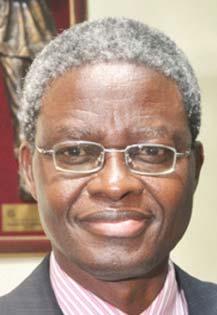
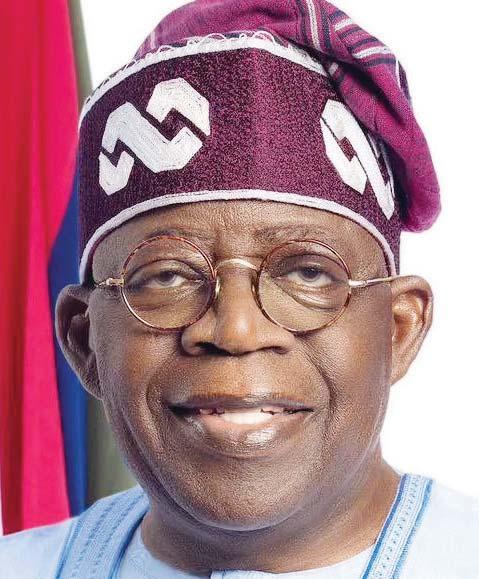
For instance, in Nigeria, the labour unions are demanding an increase from the current minimum wage of N30,000 ($20) to a minimum wage of N500,000 ($336) which is difficult for government to consider. Government has proposed N60,000 ($40). Without any jot of doubt, $20 as minimum wage is nothing to write home about in Nigeria where the amount cannot even fill up the petrol tank of a medium-size saloon car. After the first day of strike on June 3rd, negotiations between the Federal Government resumed and the Federal Government offered N62,000, that is, an additional concession of N2 (two) which the labour unions again rejected. Both sides are arguing the same reason of unsustainability for their position: unsustainable salary payment and unsustainable living wage.
Explained differently, one major objective of introducing a minimum wage in labour relations is to ‘protect workers against unduly low pay …, to ensure a just and equitable share of the fruits of progress to all, and (giving) a minimum living wage to all who are employed and in need of such protection.’ For instance, the signatories to the 1928 Minimum Wage Fixing Machinery Convention No. 26 were required to implement minimum wages where ‘no arrangements exist for the effective regulation of wages by collective agreement or otherwise and wages are exceptionally low.’ In other words, the convention is meant to be applied where there are no arrangements for the effective regulation of wages.
In essence, the historiography of federalism has shown admission by several scholars that Nigeria’s federalism is not operated the way it is done in many other countries where political authority is similarly shared. One rationale often referred to, is that Nigeria’s federalism is not a resultant from the pluralities of economic and geographic regions or from ethnic nationalities, but from the imposition of British colonial administrative traditions. In this regard, how should federalism be evolved in the absence of British mainmise? One truth which is the quality of being true, about Nigeria’s federalism is that it is false in design because of its colonial foundation. It is false in the mania of its operationalization. States in Nigeria operate on unequal footing which makes federalism problematic. In fact, Nigeria’s federalism is, at best, precarious and unacceptable. This is why there are calls for restructuring. It is because of the over-centralization of political authority that does not allow the federating units of Nigeria to be directly in charge of the conduct and management of labour affairs. Resultantly, the situation is strengthening misunderstandings between government and workers. Workers in many states of Nigeria should not be compared with their counterparts in Lagos State or Kano State, especially in terms of a state’s internally-generated revenues. A correct and true federalism is one that promotes a better standard of living and self-control at the humanitarian level.
This simply means that countries can have their own regulations on minimum wage.
Even when States have their own regulations, the minimum international standard is still supposed to be applied. In fact, the spirit of the Minimum Wage Fixing Convention, 1970 (No. 131) instructed on the coverage of ‘all groups of wage earners whose terms of employment are such that coverage would be appropriate.’ As the environmental conditionings of work begin to change, fresh conventions on minimum wages are negotiated. It is against this background that the Minimum Wage Fixing Recommendation, 1970 (No. 135), the Domestic Workers Convention, 2011 (No. 189), as well as other International Labour Organisations (ILO) instruments on wages were negotiated and adopted.
In fact, Article 4 of the Convention allows for time to time review of wages, a review of which representatives of organisations of employers and workers concerned are involved. The article also says that the Convention shall not be regarded as revising any existing Convention. And more notably, the Convention is only binding on the signatories to the Convention that have ratified it. The Convention can still be denounced after ratification, but only after ten years. In this regard, the Convention enters into force twelve months after the date on which ratifications of two Members have been registered with the ILO Director General.
Additionally, for the purposes of evaluating the extent to which the Convention is respected, the Committee of Experts on the Application of Conventions and Recommendations publishes every year a General Survey on Member States’ national law and practice on a subject approved by the Governing Body. The members of the committee are generally of high national and international standing, appointed by the Governing Body on the basis of renewable periods of three years and on the recommendation of its officers and proposal of the Director General. They are also of high moral character. They serve in private capacity and are required to be impartial. In 2002, a limit of 15 years of service was adopted, meaning that an expert cannot serve more than five terms. It was in 2014 that the General Survey focused attention on the Minimum Wage Systems. It is important to note here that the Committee of Experts is an independent body comprising legal experts given the mandate to examine the application of ILO Conventions and recommendations by ILO Member States. Interestingly, a Nigerian, President of the National Industrial Court of Nigeria and Officer of the Order of the Federal Republic (OFR), Mr. Benedict Bakwaph Kanyip, was appointed a member of the Committee in 2022.
And perhaps most importantly, international labour standard is always defined and redefined in Conventions, Protocols to Conventions and Recommendations, which ILO Member States can choose to ratify or not ratify. However, non-ratification of an ILO Convention or a Protocol does not prevent the ILO from monitoring labour developments in all countries regardless of whether a country has ratified the ILO conventions and protocols.
In this regard, as noted by the www.developmentaid.org, ‘out of 44 Conventions ratified by Nigeria, of which 30 are in force, 4 Conventions have been denounced, 8 instruments abrogated, none have been ratified in the past 12 months.’
OnecardinalobjectiveofNigeria’sforeignpolicy,asnotedinNigeria’s 1999 Constitution and as amended, is the respect for international law and treaty obligations. In the spirit of sanctity of agreements therefore, there is no reason why Nigeria, as a signatory to, and having ratified most of the ILO Conventions and Protocols, including the one on Minimum Wage, should be found wanting on the issue of minimum wage. Nigeria is pretty bound to maintain international minimum standard based on economic and developmental needs of wage earners. As the polity in Nigeria is fraught with various societal challenges, many questions cannot but be raised: is the problem of recidivist strike a resultant from economic insolvency or from bad governance? Is the problem that of lack of political will or political chicanery?
These questions are necessary because a panoramic view of political governance in Nigeria clearly suggests that Nigeria is not poor. The recklessness with which public funds are ill-gotten is unbelievable but true. The salary of Members of the National Assembly is very disproportionate with what generally obtains in the civil and public service. Political office holders earn more money than they contribute to national growth and development. They have Special Advisers and Special Assistants than necessary. How many SUVs does a Governor or a Minister have? If the amount of ill-gotten money is expended within the framework of Minimum Wage, there will be more happiness and greater productivity. Workers’ strike may not be much painful as it is today.
From the character of the ongoing negotiations between the Federal Government and the labour unions, there is nothing to suggest any seriousness of purpose at the governmental level, and particularly at the level of the federating States of Nigeria. It should be recalled here that when the Minimum Wage was N30,000 per month, several States in Nigeria purported not to have the means to pay and they never paid. Without doubt, minimum wage can include salary in kind. In spite of this, many of the States claim not to be solvent enough to pay. And now that the Minimum Wage is put at N60,000 which the labour unions rejected and with an additional amount of two naira but still rejected, a special reconsideration of the wage problem has become a desideratum.
Read full article online - www.thisdaylive.com

Hannatu Musa-Musawa, a lawyer, is the Minister of Art, Culture, and Creative Economy. In this interview with Vanessa Obioha, explains the eight-point agenda of her ministry and how she hopes to achieve the outcomes set out by President Bola Ahmed Tinubu. Excerpts:
Since your appointment as Minister of Arts, Culture and the Creative Economy, what are those things that have happened in that space?
A lot! I think one of those things that shows that President Bola Tinubu is an innovator is the fact that he really was committed to diversifying from our normal means of revenue, which is oil. In that diversification, he created this amazing ministry – art, culture, and the creative economy – the first of its kind in Nigeria. When I got this job, I decided to approach it from a ground zero point of view because I really felt that not much had been done in the space to create a fortifying sort of industry-specific structure. The basic things that are needed to put a foundation were not there, so we approached it from a ground zero perspective. In doing that, I came up with an eight-point agenda. That eight-point agenda hammers on making Nigeria a global creativity hub and engaging in skills acquisition for members of the industry and capacity building so that they will be able to be better positioned for job creation.
Can you break down this eight-point agenda and its operationalisation?
Policy framework is central when you talk about building a foundation. We decided to look at all the policies that are needed. The issue of culture policy, creative economy policy, and infrastructure policy. These were some things that we felt were very important. Of course, there is the issue of stakeholder engagement. Stakeholder engagement: One of the greatest things about this industry is the fact that members and players have allowed the industry to grow organically and become successful in spite of the government. Now that the government has come into place, these are the people who operate within the space. They know what needs to be done. Then, you also look at the strategic partnerships that are necessary - the PPPs. When you look at what needs to be done in this industry, the government cannot do it alone. I think for the purpose of sustainability, the government should not do it alone. The issue of strategic partnerships is very key. One of the things that we looked at in terms of the potential of the industry was its ability to create an economic expansion. We came up with a very ambitious goal of trying to contribute at least $100 billion to increase the GDP by 2030 or 2031. It’s the potential to bring in economic growth.
Is that achievable?
Yes, it is achievable, but I’ll get to that later. On the issue of infrastructure, when you talk about building a foundation, it is key. There is really no infrastructure that is able to support the growth of the industry. It is a key area on which we want to concentrate. The promotion of cultural heritage. One of the mandates of the ministry is to give a cultural expansion. In this cultural expansion, we hope to make Nigeria the cultural hub of Africa, especially given the sort of diversity that we have. We also have a great initiative called Destination 2030, which we launched earlier in the year. Destination 2030 is a sort of branding. It is something that we want to use to reposition Nigeria in the eyes of the world. We have launched Destination 2030, and it is going to create a soft power for Nigeria. That has been launched, and we hope to be able to expand it more in the next coming months, in the next years, to really make Nigeria the focal point of global interest, especially now when you have the whole world interested in the talent and content that Nigeria has to produce. Destination 2030 is an ongoing initiative that can only be fleshed out as time goes. On the skill acquisition, through our agencies, we have been able to give capacity training to a number of youths in various areas such as arts, crafts, music, and film. We hope to continue to do so and more.
Is there a possibility that you will create hubs for talents across the country?
Yes, we are talking about creating hubs, and already, we have started. We are partnering one of the greatest members of this industry, a young man, Mr. Bayo, who created Mad House in Lagos.
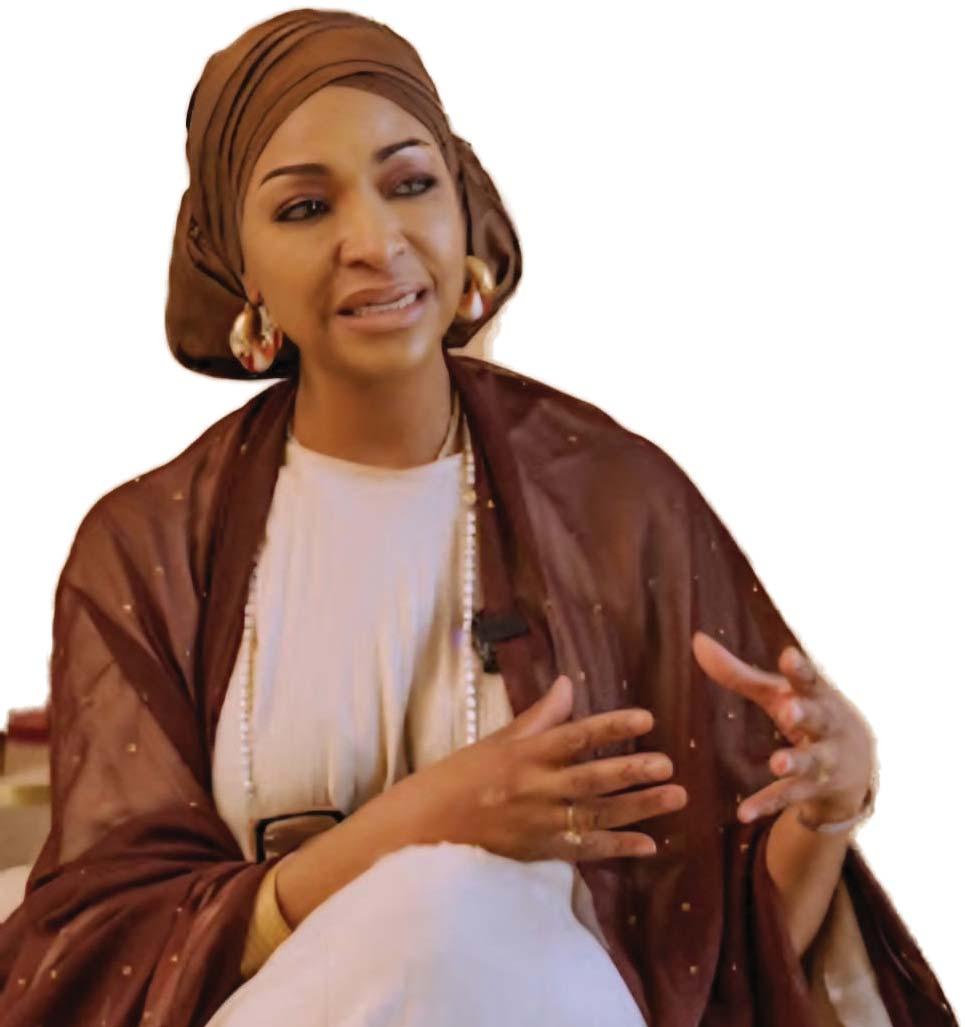
We are working together with him to see how we can expand those incubators and those hubs in the different festivals apart from the ones that he has already done in Lagos, which we have already keyed into. He has already started here in Abuja, it is almost finished, and the federal government is going to come in to partner him on that. We are trying to see how we can put it in the six different geo-political zones first, and then we will expand that to the different states, hopefully. By the end of the administration, we will have been able to expand those incubators to every single senatorial district so that we are able to take this ability to have the skills acquisition to the grassroots within communities. Hopefully, we will be able to do that, and it is going to be based on the successes that we will have with the first six geopolitical zones. With this skills acquisition, the ministry has launched what we call CLAP - Creatively Acceleration Programme, which is a digital platform that is a convergence point for creatives. Creatives can come onto this platform and be able to partner them in areas where
they are able to gain the specific skill that they need and the specific tours that are required for them to be able to build on the capacity.
Some time ago, you talked about job creation and you were very upbeat about it. What progress have you made in that direction?
When it comes to job creation, which is one of the things that we have committed to as a ministry, specifically for the younger demographics with CLAP, we will be able to get them jobs whether in Nigeria or across the world. It is a tool that we have already launched within the ministry, we are working to flesh that out as well, and hopefully, we will take it to the executive council. As I’ve said earlier, policy is key. It is foundational. One of the main areas that we concentrated on is in intellectual property, IP, and protection. When you
talk about the creative industry, you cannot even start a conversation if you don’t have intellectual property protection and copyright. Last week, the Minister of Trade and Investment and I set up a committee that is going to look into ensuring that within the span of four to six weeks, we have IP protection and securitisation. Already, we have a working document. IP protection cuts across the span of many ministries. You have about nine or eight ministries that are involved. So we have to get inputs from all these ministries involved in terms of what they need to be captured within the kind of documents that we are already working with. Hopefully within the next six weeks, we will present that to the executive council and ensure that we have IP securitization that is needed not only to give the protection of people in the industry, but also to ensure that people in the industry can use their IP as collateral.
When you have IP securitisation, it gives confidence to investors to come into the country. For me, IP is very key.
We’ve not discussed culture here. I watched you somewhere discussing the issue of cultural heritage with passion?
Thank you. Cultural policy is important. In my ministry, we are working with a document, I think there already exists a 2020 document on cultural policy. We are cleaning that up, and I think that within the next couple of weeks, maybe three weeks at the most, we will be able to present cultural policy to the nation. We are also working with NESG. We have already signed a memorandum of understanding with NESG to work on ensuring that we present a policy that would be able to give the kind of protection and security and support that members of the industry really require.
What about incentives for industry operators?
You preempted me on that. Part of the policy framework that we want to put in place is an incentive policy. Incentive policy is very important for people in the industry, and we have already started working on that. It is just a matter of cleaning that up and presenting it to the public. The incentive policy also looks at how we can give incentives to people and rebates, tax rebates within the industry. International people who work with them in the industry will be able to come and work in Nigeria having that friendly working environment to be able to do so. I have already started talking to the Minister of Internal Affairs, Mr. Bunmi Olatunji-Ojo. We are introducing a visa scheme for the creatives, specifically created for the creatives. That is almost at the final stages of the presentation. That is part of the incentives that we are looking at - ways we can encourage people to come into the country, bring their equipment into the country, and have some sort of rebate in relation to that. That is what we have done in terms of incentives and policy implementation.
On governance and collaboration, one of the great things that I have mentioned is that you have people in the industry who have been able to grow the industry organically. They have succeeded in spite of the government. These people have to have a voice in terms of how to create these policies. For example, when I talk to you about the culture and IP policies, we still have to go back to people in the industry to bring their input as to what they feel is needed to continue to propel the industry and the ministry forward. This collaboration is very key, and we have already done a number of stakeholder engagements, and we will continue to do so.
One of the things that I have said was always going to happen was that we were going to have an advisory council within the ministry. This advisory council, together with NESG, is part of the MoU that we have already signed with the NESG. This advisory council is going to be situated in the ministry. Very soon, that advisory council will be populated by members of the industry. The greats in the industry who know what needs to be done within the industry. Already, I have issued invitations to a number of people that I think are key to the industry, and their names will soon be announced by the government. That advisory council is very key. That also relates to strategic partnerships.
How are you proposing to handle the issue of sustainability so that in the long run, that space would not wane?
As a government, we cannot be able to put a structure together if you are looking at the sustainability of it. So, we are looking at PPP partnerships. We have discussed with a number of banking institutions, people who have interest and foundations where we can get grants for people within the industry. Very soon, we will be able to announce that we have been able to gain grants from these endowment funds. This is very key. It sounds ambitious, but it really isn’t when you look at the kind of value that is created within the industry. It is just a matter of closing the lacunas and trying to bring that value back home. The numbers are there already. It is just about creating an enabling environment that would allow us to get this value economically. One of the great things that we have started and I am taking it to the executive council is an arena. We do not have one arena in Nigeria. Recently, we had a great Nigerian, Mr. Amusan, who is building an arena in Lagos. We should have arenas all over Nigeria. Already in the ministry, we have started discussions as to how we can do one huge arena in the centre of Abuja and then we hope to have what we call the Abuja Creative City, which will be a one stop shop for everything creative. There, you will have your film studios, arena, and music studio.
What about the infrastructure to support what you’re planning to do?
Infrastructure is key. We need to upgrade our museums. As the capital city of Abuja, we don’t have a museum. That is a shame. So, we have to upgrade the existing museums in at least the six geo-political zones so that we will be able to bring back some of our artefacts. Infrastructure, cinemas. We are bringing back cinemas, cinemas

in all the states and, hopefully, local governments if it is possible. That is already a discussion, and we are almost done with that. Heritage preservation is key. This cultural expansion we are talking about is also about the preservation of our culture, and this can be done through the cinemas, the return of our artifacts, and the loan of some of our major artefacts.
Since you started your stakeholder engagements, what sort of challenges would you say you have faced?
One of the main challenges that we faced and which we still face in stakeholder engagements is that the industry has really grown lethargic with the promises of governments. In the past, the government had done nothing to help them. This is the first time a president has found it fit to create a ministry to cater specifically to the industry. The fact that you look at IP policy which isn’t in place because there has not been a ministry that looked at the peculiar nature that is required, and the peculiar requirements needed to be put in place. In the beginning, what I faced was that industry players felt the government was on the other side, and members of the industry were over here. There was no trust. It is still going to take a lot for us to bring that trust and the only way we can do it is by giving them the legal regulatory framework that they need, the grants, the capacity building and endowments that they need as well as giving them the infrastructure that they need. Once you do that, you will be able to bring that trust back. Other than that, I have found a lot of magnanimity with the main players in the industry. They have welcomed me. Many of them don’t need us. They have succeeded on their own, but because they care about the industry, they are looking at long-term sustainability.
You talked about $ 100 billion by 2030. How achievable is that?
It is doable. The numbers that we have are based on the metrics out there already. The kind of numbers coming in from Spotify, YouTube, and
NETFLIX. You look at the number from the great Funke Akindele’s movie, which grossed a billion plus with hardly any major cinema. Can you imagine the numbers that can be generated if we are able to expand the cinemas? If you are able to give them IP securitization, imagine the lacunas that you would be able to breach. If you do that and you are able to give them infrastructure, you are able to draw a lot of concerts coming into the country. Nigeria’s movie industry is the second biggest in the world, but they don’t have the infrastructure and the proper backing to be able to produce good productions. The productions that we are able to gross are billions that we are talking about in Bollywood and Hollywood. If you are able to give them that enabling environment, those numbers are not very difficult if you look at what South Korea and Japan are doing. I am just looking at the movie industry, but we have the fashion industry, the music industry, and the culinary industry. Can you imagine the kind of money that we can make just by monetising our jollof or monetising our food? It is not very difficult. It is not something that can be done overnight, but we need to put in place an enabling environment that would be able to foster a certain amount of growth from 2027 to 2030.
To what extent are you collaborating with the National Assembly in terms of legislation?
Legislation is going to play a key role. We have done a number of engagements as to how we can upgrade some of our laws. What I met was an industry and a ministry with very obsolete laws. With my background as a lawyer, I was shocked as to how outdated some of these laws were. It is shocking that there has been a ministry in the past, and the laws were just left there. What the President has done by creating this ministry is one that we have no choice but to put on our magnifying glass where it needs to be put. Almost all the laws that govern this particular industry have got to be upgraded. Law reform is going to play a huge part. That is why I said it is only when the government comes in to liaise with members of the industry that you can really get this upsurge. Members of the industry
are not going to be able to put legislation through as fast as the government would.
You’ve been touting job creation as a cornerstone of your engagements?
We hope to create at least two million jobs by 2027. That is our hope, and I think with what we have done so far, we will be able to do that. Part of our own mandate is to engage a younger demography in almost everything that we do. This is almost all part of job creation, and I have all my agencies pursuing that goal. I have been very lucky because my agencies are now populated with members of the industry who know what needs to be done. The likes of Ali Nuhu, Obi Asika, Tola Akerele, Otunba Ajiboye, these are greats within the space, they know what needs to be done and are working overtime to ensure that they are able to achieve this economic expansion but also to create that enabling environment that people of their industry need. Job creation is very key to Mr. President, and he wants to cater specifically to that young demographic.
One of the things that you would have learnt very early as minister is that there are a lot of fault lines?
Of course, being a member of a northern extraction that has grown up more with the southern community, I do understand those fault lines. What I know is the importance of taking these fault lines into consideration. And in whatever you do, you have to localise it. We intend to work directly with the state governments to ensure that we have a cultural village or cultural renaissance in every state. At the moment, we are coming up with a template for every single state, and we are going to send that to the state governors. Once we send that to the state governors asking them to ask their own commissioners from the relevant ministries to make input as to what they want to be specifically captured within their states. I hope to do a tour of every state. It is a tour we hope to do very soon within the next two months. We will take that template to every single state, and we would invite the state governments to work with us hand in hand to put up a cultural experience, whether a cultural village where they will have their museums. We will be working closely with the National Economic Council (NEC).
Modi loses his majority; but will rule again, writes RAJENDRA ANEJA
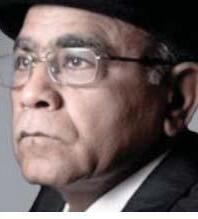


KUNLE OSISANYA argues that state police in Nigeria is an idea whose time has come
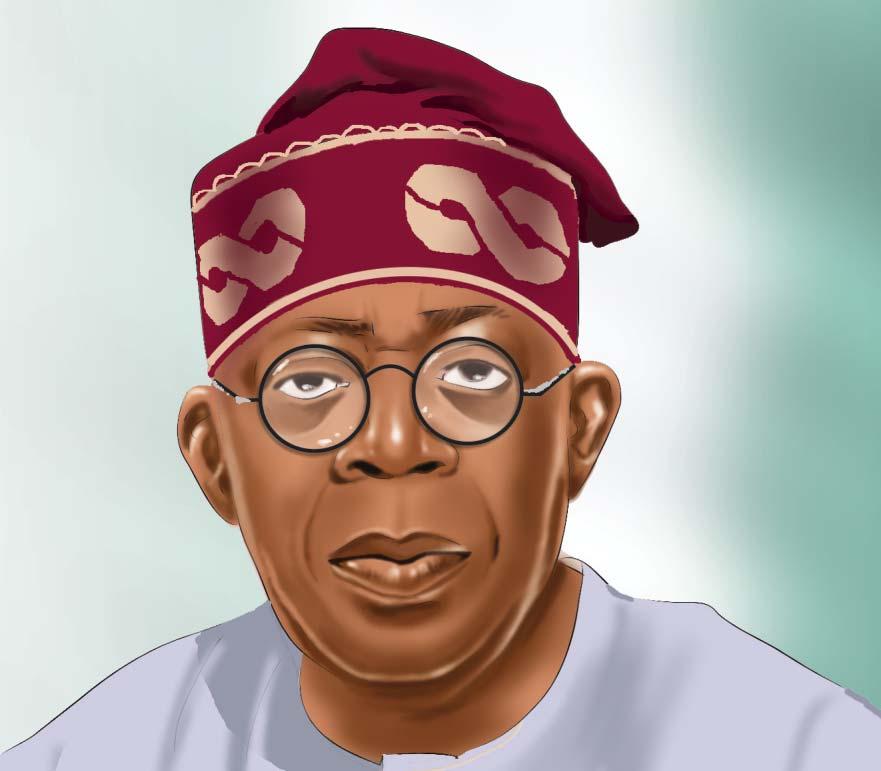
IThere are more pressing matters in our polity beyond winning elections. These include curbing the threat to lives occasioned by pervasive insecurity, need for law enforcement process to promote economic development and peaceful coexistence
It is the easiest way to achieve the

Editor, Editorial Page PETER ISHAKA
Email peter.ishaka@thisdaylive.com
It is unfortunate that several buildings belonging to the federal government continue to lay waste economic assets. Last week, the Building Collapse Prevention Guild, Ikoyi, Lagos, expressed concerns about the deteriorating state of some national monuments and federal government’s property within the area, arguing that the lack of occupancy and regular maintenance are contributing to their rapid dilapidation. The guild cited the abandoned multi-storey Federal Secretariat Complex, Ikoyi, and the Ikoyi Towers, as public investments that are wasting. Aside from the economic implications, the security risks posed by criminals who use the neglected buildings as havens for nefarious activities, the high-brow area has also experienced serial incidents of building collapse. it would appear people in authorities seem not to consider many of these but which are currently in disuse across the country, as part of what should make up our national wealth. Apart from the potential positive social impact being lost, we also believe that these facilities, if put to productive use, can help provide jobs for a considerable number of our young people. Unfortunately, considering the manner these assets are left to rot away by successive governments, we are compelled to believe that their existence does not matter to the country’s policymakers and managers.

Lagos-Badagry Expressway, which reportedly has become a haven for kidnappers, ritualists and armed robbers. Many of these buildings, which are very much suitable for conversion into other uses, are lying fallow, and have become more or less ‘dead capital’.
Unfortunately, the issue of abandoned properties is widespread, even if it is more pronounced in Lagos. Across the country, many properties belonging to individuals, states and the federal government have either been abandonment, or underutilised, and constituting danger to lives and property. But it speaks to failure in leadership that these prime national assets as its economic strengths are left to waste away. Simply because the relevant authorities have refused to turn them into the economic goods which they should be. At best, some of these assets are often put out for no better use than social activities all of which often come at heavy costs to them and the country.
Why is it a huge challenge to the federal government to consider and enact a policy that would guide the use and management of Nigeria’s national assets?
SUNDAY NEWSPAPER
EDITOR DAVIDSON IRIEKPEN
DEPUTY EDITORS FESTUS AKANBI, EJIOFOR ALIKE
MANAGING DIRECTOR ENIOLA BELLO
DEPUTY MANAGING DIRECTOR ISRAEL IWEGBU
CHAIRMAN EDITORIAL BOARD OLUSEGUN ADENIYI
EDITOR NATION’S CAPITAL IYOBOSA UWUGIAREN THE OMBUDSMAN KAYODE KOMOLAFE
There are several abandoned offices and houses all over Lagos resulting particularly from the movement of the seat of government from Lagos to Abuja. Some of the buildings include the old National Assembly Complex at Tafawa Balewa Square, Independent Building, which housed the Defence Ministry and former Federal Ministry of Commerce at Tinubu Square, the Federal Ministry of Works and Housing, Ministry of Education Building and the NITEL Building. Others are former Supreme Court Building, former Navy Headquarters on the Marina, the NNPC Complex in Ikoyi, and the the uncompleted 18-storey National Provident Fund Building (Nigeria Social Insurance Trust Fund) off the
GROUP
THISDAY NEWSPAPERS LIMITED
EDITOR-IN-CHIEF/CHAIRMAN NDUKA OBAIGBENA
EXECUTIVE DIRECTORS ENIOLA BELLO, KAYODE KOMOLAFE, ISRAEL IWEGBU, EMMANUEL EFENI
DIVISIONAL DIRECTORS SHAKA MOMODU, PETER IWEGBU, ANTHONY OGEDENGBE
DEPUTY DIVISIONAL DIRECTOR OJOGUN VICTOR DANBOYI
SNR. ASSOCIATE DIRECTOR ERIC OJEH
ASSOCIATE DIRECTOR PATRICK EIMIUHI
CONTROLLERS ABIMBOLA TAIWO, UCHENNA DIBIAGWU, NDUKA MOSERI
DIRECTOR, PRINTING PRODUCTION CHUKS ONWUDINJO
TO SEND EMAIL: first name.surname@thisdaylive.com
If we may ask, why is it a huge challenge to the federal government to consider and enact a policy that would guide the use and management of Nigeria’s national assets? What would it take from the government to consider and implement management models for these assets? And if the federal government cannot manage these edifices, why not hand them over to the government of the states where they are domiciled or sell them to private investors so they could be put to some productive use?
Last month, the House of Representatives urged the federal government to convert its abandoned buildings and forfeited lands locally and abroad for public use. “Some agencies of government operating in states across the country are experiencing challenges in in paying rent,” said Iyawe Esosa, who moved the motion that was unanimously adopted by his colleagues. “Reports have revealed that over 50 civil servants, and other individuals are currently unoccupied and rotting away.”
To be concluded tomorrow
Letters in response to specific publications in THISDAY should be brief(150-200 words) and straight to the point. Interested readers may send such letters along with their contact details to opinion@thisdaylive.com. We also welcome comments and opinions on topical local, national and international issues provided they are well-written and should also not be longer than (950- 1000 words). They should be sent to opinion@thisdaylive. com along with the email address and phone numbers of the writer
It appears that we have made an unsettling aesthetic choice with the quantity of plastic waste that litter our streets and public areas in Nigeria. Unfortunately, a large amount of plastic trash frequently enters the ecosystem and ends up in both terrestrial and aquatic settings. Quality of life is negatively impacted by this, and made worse by the lack of infrastructure to collect and recycle plastic waste. It is now gradually becoming the norm for the bulk of the population to dispose of plastic garbage recklessly.
The increasing use of plastics and its harmful effects as a result of the waste pollution is not confined to any one nation or continent. And it affects both humans and animals. Countries and different stakeholders all over the world are seeking lasting solution to this plastic pollution and seeking ways to enact a global treaty that will end this pollution and safeguard our common ecosystem. This was the major objective of the Fourth Session of the intergovernmental Negotiating committee which was to develop
an international legally binding instrument on plastic pollution, including the Marine Environment (INC-4) held at the Shaw Centre, Ottawa, Canada from April 23-29, 2024. Over 70 participants, including ANEEJ, participated. INC Chair Luis Vayas Valdivieso, Ecuador, addressed the critical role of advancing negotiations to deliver effective and impactful solutions to address plastic pollution. The Executive Director of the United Nations Environment Program (UNEP), Ms. Inger Andersen, Executive Secretary of the intergovernmental Negotiating Committee (INC), Mrs. Jyoti Mathur Filipp, and Minister of Environment and Climate Change Canada, Steven Guilbeault, also delivered opening statements on April 23, 2024, the day of the official opening. They reiterated the meeting’s objective, to produce an international treaty that will put a stop to plastic pollution. Worthy of note were three thematic side events on plastic pollution in the marine environment.
They were approaches to capacity building, financing and financial mechanisms, and enabling just transition. Discussions on these areas focused on interventions to end plastic pollution, suggestions on different approaches like targeted inclusive approach, awareness and education programme tailored to different stakeholders, addressing the health particularly women’s health, collaborative learning and multi-stakeholder coordination, promotion of data-driven decision making, monitoring progress and adapt approach, ensure viable project frameworks and enable sustainable financing.
With the global treaty likely to be finished at INC-5 in November, there is still a lot of work to be done as delegates get ready. This is because member nations and civil society organizations will have the chance to set the stage for the global treaty’s implementation.
Additionally, Ambassador Obiora Nzewuji, the Acting Nigerian High Commissioner to
Canada, met with us and other Nigerian observer groups to discuss some of the meeting’s outcomes and to make sure Nigeria is ready for the treaty’s implementation when it is eventually concluded.
Notably, reducing plastic pollution worldwide, and especially in Nigeria, will require more than just signing a global treaty. Before the global treaty on ending plastic pollution is finalized at INC-5, our government must establish proactive measures like bolstering the recycling system, conducting capacity building for waste management involving not only office workers but waste pickers who are out on the streets every day, and launching a massive public awareness campaign that targets every citizen role in the value chain.
Sandra Eguagie, Africa Network for Environment & Economic Justice
The Agbede family of the Ogidi Ruling Dynasty of Igbara-Oke, Ondo State, on Friday, May 31, 2024 held a funeral service in honour of one their iconic son, Prince Adebayo Adegoke Agbede at the All Souls' Anglican Church, Lekki Phase 1 and reception party as held at the Queens Park Event Center, Water Corporation Road Victoria Island Lagos, where friends and family get together to celebrate. Here are some personalities that graced the event PHOTO: ETOP UKUTT




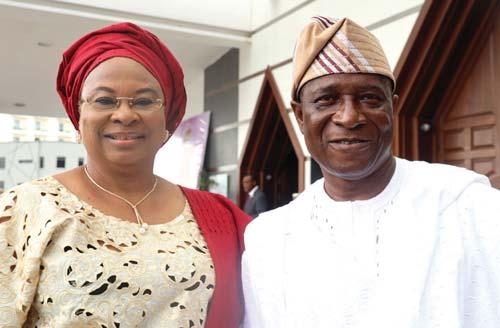
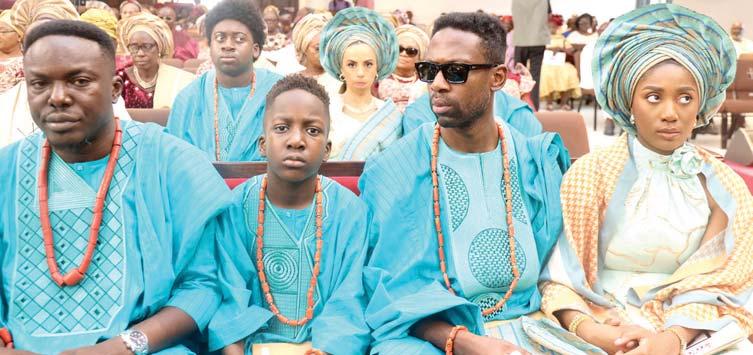

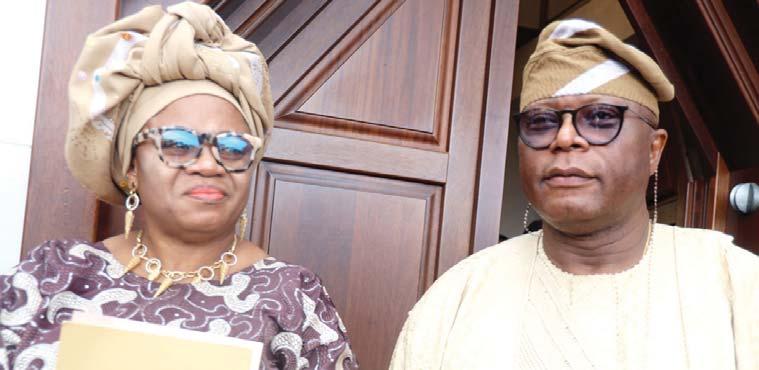

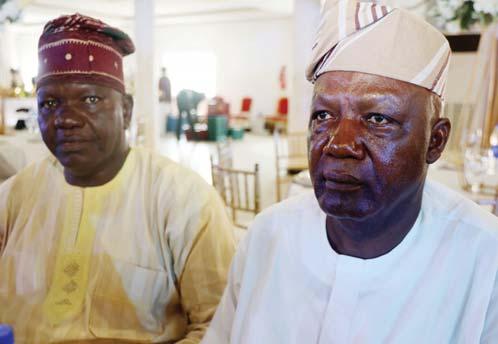

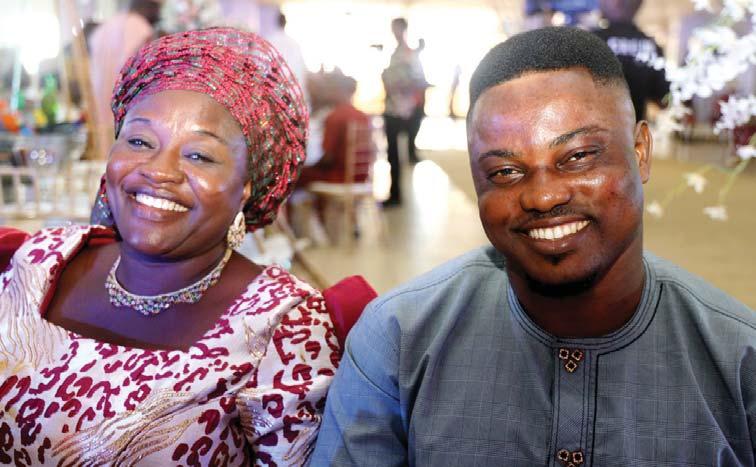
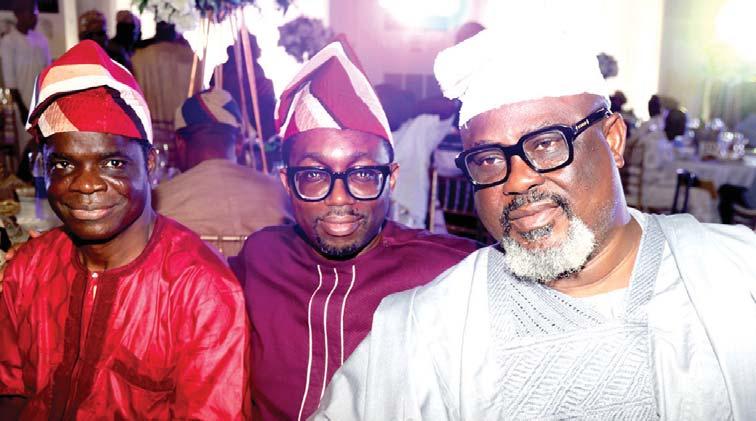
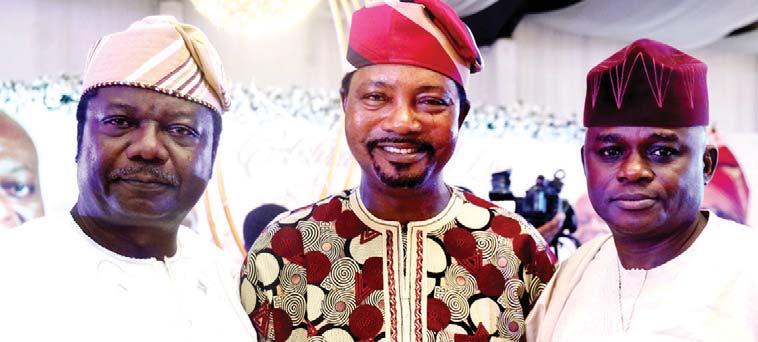
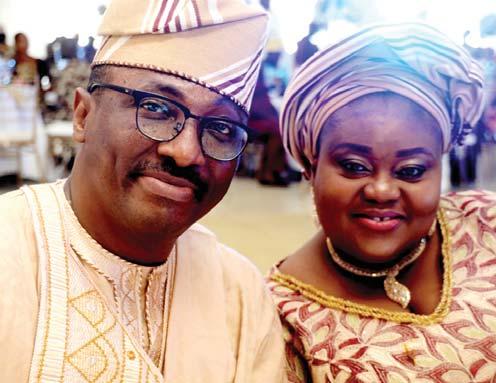
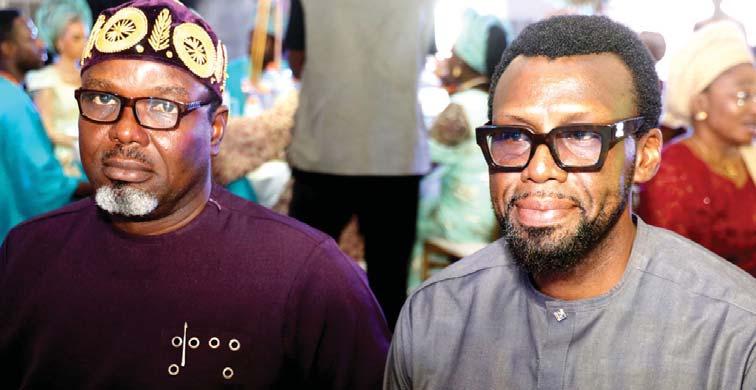
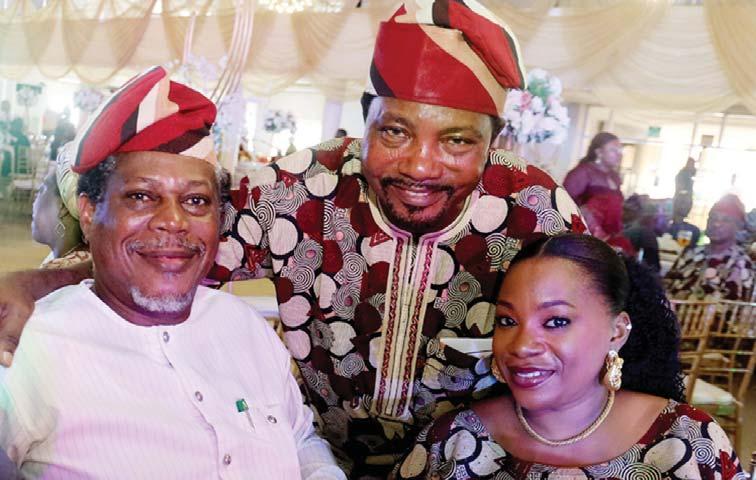

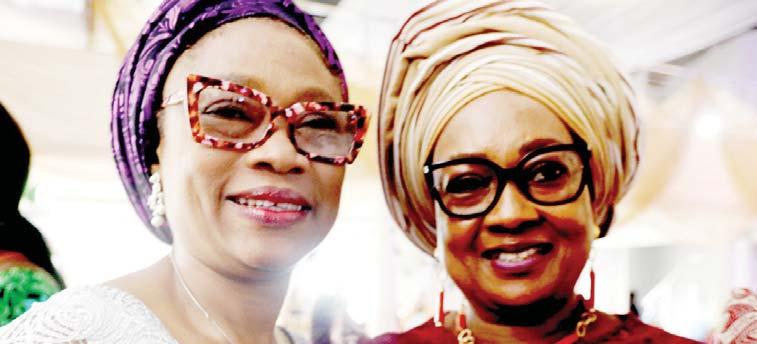
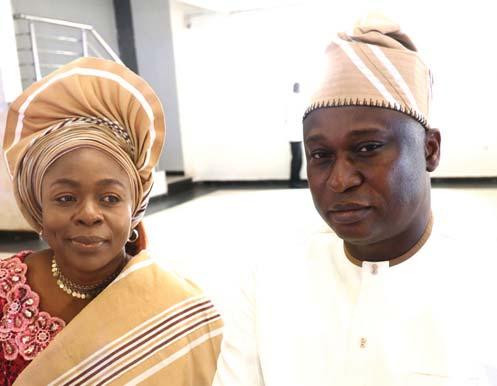

Activities in the seas and oceans is a growing concern for the global community, as it serves as a veritable source of economic development and wealth creation, owing to the numerous resources embedded therein, thereby necessitating the need to ensure the sustainable use of these resources for nature and humanity.
Undoubtedly, the seas and oceans facilitate over 80 per cent of global trade, as proven by researchers in maritime studies. This underscores the need for conscious efforts by humanity to preserve them for posterity. Stakeholders across the globe are making deliberate efforts to ensure the sustainable use and harnessing of opportunities in the seas and the oceans for the benefit of nature and humanity.
Furthermore, research indicates that ocean resources, with their increasing economic capabilities are projected to double their contribution to the global economy from US$1.5 trillion in 2010 to US$3 trillion by 2030. Based on this premise, various governments and corporate entities worldwide are making intentional efforts to utilise the investments derived from the oceans, including fisheries, aquaculture, tourism, bioprospecting, seabed mining, oil and gas, renewable energy, and shipping, all culminating into the Blue Economy concept.
The Blue Economy concept has reached the height of global acceptability, continuing to take centre stage in global discourse. This aligns with the United Nations Sus- tainable Development Goals (UNSDGs), aimed at tackling poverty, hunger, and other challenges outlined in the 17 Goals.
Ultimately, the maritime sector has huge roles to play in the actualisation of the UNSDGs, as the Blue Economy mantra remains a beacon of hope to the world at large, as the oceans have remained a driver for economic development, job creation and wealth creation. It aims to utilise ocean resources sustainably to foster development opportunities in the Exclusive Economic Zones of coastal nations globally.
Researchers have described the blue economy concept as the approach of actualising long-term prosperity by a region or a country towards the citizens’ overall well-being and humanity in general.
Meanwhile, these ecosystems face several challenges including overexploitation of resources, human activities, and other issues that threaten the sustainable use of the resources found in the seas and the oceans. This does not exclude discussions on climate change issues, which are also a growing concern for many organisations; including the International Maritime Organisation (IMO) and its member states as they strive to harness the full potential of the Blue Economy. All these efforts have led to the drafting of integrated strategies and frameworks aimed at achieving continental, regional and national prosperity, as well promoting wealth creation through the sustainable use of the seas and the oceans.
Aware of the massive opportunities in the Nigeria seas and oceans and the need to ensure a diversified economy, the Nigerian Federal Government adopted a multipronged approach to utilizing the resources in the region, known as the Integrated National Security and Waterways Protection Infrastructure Project, also known as the Deep Blue Project. The aim of the Deep Blue Project is to secure Nigeria’s territorial waters from all forms of illegalities, including piracy, Illegal Unreported and Unregulated (IUU) Fishing, and overfishing, among others. The overall goal is to promote increased shipping activities and encourage investor participation, thereby attracting Foreign Direct Investments (FDIs) to the country. Interestingly, Nigeria has a vast coastline of about 853 kilometres, in addition to

about 3,000 kilometres of navigable inland waterways. This demonstrates the enormous resources the country posseses; hence the need to preserve the oceans for economic development. Therefore, the concept of the Deep Blue Project is to ensure that a holistic approach is taken to prevent all forms of illegalities on the Nigerian territorial waters. Enforcement, regional cooperation, the building of a swift response capability and robust maritime domain awareness are among the key initiatives of the Deep Blue Project. These efforts have continued to yield positive results, as evidenced by Nigeria’s removal from the global piracy list and ongoing discussions to exclude Nigeria from War Risk Insurance countries.
The initiative comprises a Command, Control, Communication, Computers, and Intelligence (C4I) Operation Centre operated by trained military and civilian personnel. Their training includes physical techniques as well as the use of technology to tackle maritime crimes in the nation’s territorial waters. The Centre, domiciled within the Nigerian Maritime Administration and Safety Agency (NIMASA) in Lagos, consists of a maritime intelligence system designed to ensure data authenticity while creating a reliable global maritime picture to understand the “patterns of life” of vessels and reveal risk indicators. The system, programmed to detect criminal activities, also provides early warnings on emerging threats in Nigerian waters, enabling prompt action to prepare and dispatch undercover and military vessels to take decisive action.
The project involves personnel from the Nigerian Armed Forces, Air Force, Army, Navy, Police, Department of State Services and officers of NIMASA. Aside from the C4i operational center, the Deep Blue Project also involves the acquisition of special mission vessels and armored vehicles. These assets are operated by trained personnel to ensure effective monitoring and control of the Nigerian
maritime domain.
The land assets include 16 armored vehicles dedicated to coastal patrol and a Maritime Security Unit (MSU) comprising 600 specially trained troops for interdiction operations. The sea assets include 2 Special Mission Vessels and 17 Fast Interceptor Boats. The air assets comprise two Special Mission Aircrafts for surveillance of the country’s Exclusive Economic Zone (EEZ); three Special Mission Helicopters for search and rescue operations; and four Unmanned Aerial Vehicles.
To give credence to the Deep Blue Project, the Federal Government of Nigeria, in 2019 signed into law the Suppression of Piracy and Other Maritime Offences (SPOMO) Act, aimed at enhancing the regime of prosecution of offenders. Since this Act came into law, it has facilitated and enhanced prosecution of about 30 persons who have been punished for various offences.
The signing into law of this Act gives force to both the United Nations Convention on the Law of the Sea (UNCLOS) 1982 and the Convention on the Suppression of Unlawful Acts against the Safety of Maritime Navigation (SUA) 1988.
Being the first of its kind in the West and Central African Sub-Region, the lawsuit addresses the international requirement for separate legislation to tackle piracy and other related maritime offences in the Nigerian waters and by extension, the Gulf of Guinea.
As part of efforts to bolster the opportunities in the Nigerian maritime sector, in August 2023, the Federal Government of Nigeria, under the leadership of President Bola Ahmed Tinubu, GCFR accorded a “special status” to the maritime
sector by creating a Ministry of Marine and Blue Economy; a move that stakeholders have described as a step in the right direction. The Ministry has continued to provide direction for the sector in order to harness the resources in the oceans.
Suffice to state that Nigeria’s exit from the piracy list has received several commendations from the International Maritime Organisation (IMO) and stakeholders in the global maritime community. This can be alluded to the synergetic approach NIMASA has put in place in order to reap the benefits of the Deep Blue Project.
To underscore the importance of the maritime sector to economic development, Dr. Dayo Mobereola, the Director General of NIMASA, during a meeting with top Management staff of the Agency, emphasized the need to align the Agency’s objectives with presidential priorities without losing sight of the Agency’s core functions.
These areas include; developing and implementing a national policy on Marine and Blue Economy, enhancing maritime safety, security and compliance with globally acceptable standards, promoting indigenous participation in the maritime sector in line with the Cabotage Act, and sustaining a zero-incident report for Nigeria in the International Maritime Bureau (IMB) piracy reports. All these require collaboration, which will lead to information gathering and sharing, with the Deep Blue initiative playing a pivotal role in the actualization of the aforementioned priorities.
During the Operation Maritime Capability Demonstration held in Lagos, Mobereola, while addressing the media, assured that the Agency is committed to the sustainability of the project. He said, ‘This project has earned Nigeria international recognition by the International Maritime Organisation (IMO), and we have been removed from the piracy list. The aim is to continue to sustain it, and we will continue to encourage the personnel of the Deep Blue Project to keep up their efforts. On our part we will continue to support you as much as possible. Please, do not reduce your efforts, as we count on you to make the maritime space more secure. The President of Nigeria is counting on you, the Honourable Minister of Marine and Blue Economy, Adegboyega Oyetola, is also in support of this project.”
It is therefore apt to state that the Deep Blue Project has put Nigeria on the global pedestal and has helped to reduce piracy activities on the nation’s waterways, and by extension, the Gulf of Guinea. The NIMASA Management has consistently reiterated its zero tolerance for illegal activities our waters.
The author of this piece wishes to emphasize the need for the Federal Government to invest in Research and Development in order to optimize the benefits in the sector. It is no gainsaying that the maritime sector, if well utilized, can contribute massively to the Gross Domestic Product (GDP) of Nigeria. Stakeholders, on their part, have a role to play, and the government should continue to provide the enabling environment for businesses to thrive.
Conclusively, the cliché “potential” commonly used to describe the opportunities in the sector should be transformed into reality so that the Blue Economy rationale does not become mere theoretical or rhetoric; rather, the government should adopt a practical approach, by engaging the professionals in the industry, whilst also walking the talk. There is still a lot to do in achieving a robust maritime sector in Nigeria. With all these in place, Dr. Mobereola stands the chance to write his name in gold, and posterity will be kind to him, as he makes efforts to calibrate the Nigerian maritime sector towards economic growth and development.
Oluwafemi writes from Lagos.
For a country with a history of bank failures, last week’s revocation of the licence of Heritage Bank did not come as a shock. However, analysts believe that the decision of the regulators to close the bank at this period is a lesson to other players that the era of regulatory cover-up and breaches is gone, writes Festus Akanbi
It was the end of the road for the systemically challenged Heritage Bank last week when the Central Bank of Nigeria (CBN) announced the revocation of its operating licence, paving the way for auditors from the Nigeria Deposit Insurance Corporation (NDIC) to swarm on the books of the bank in a last minute attempt at sorting out depositors and creditors’ funds.
The CBN, which cited the bank’s persistent requirements as reasons for the withdrawal of licence, pointed out that the decision was part system in Nigeria, as outlined under Section 12 of the Banks and Other Financial Institutions Act (BOFIA) 2020.
Heritage Bank was said to have failed to adhere to Section 12 (1) of BOFIA 2020, which necessitated the regulatory intervention.
The banking public was told that despite multiple supervisory measures prescribed by the CBN to mitigate the bank’s declining
To assuage the fears of customers of the bank, the NDIC said the bank’s liquidation has started. Its Director of Communication indication, noted that depositors are protected, as the NDIC is currently verifying to pay bank customers up to N5million, depending on their deposits.
Similarly, creditors of Heritage Bank are instructed to visit the nearest bank branch to debtors with outstanding loans are advised to contact the corporation’s Asset Management Department (AMD) to arrange repayments.
Crackdown on Debtors
As a follow up to the revocation of the bank’s licence, the Managing Director/Chief Executive of Nigeria Deposit Insurance Corporation (NDIC), Mr. Bello Hassan, has vowed to employ all resources at its disposal to recover over N700 billion loans and advances owed to the defunct Heritage Bank Plc, whose operating license was recently revoked by the Central Bank of Nigeria (CBN).
Hassan said NDIC had the responsibility to recover all debts as well as pay eligible depositors and creditors. He also said payment of insured deposits to customers of the failed bank would commence this week, rather than the 30 days prescribed by the NDIC Act.
Informed analysts, however, said the fall of the bank did not come as a surprise and accused the previous management of the apex bank of postponing the evil day as far as the Heritage Bank was concerned.
For instance, in a review of the bank’s perfor-
Mr. Femi Awoyemi, as far back as 2019 warned statement.
According to Awoyemi, one of the issues haunting the bank was the acquisition of Enterprise Bank which he described as a major strategic error. He also pointed out that the bank’s non-performing loans were among the worst in the industry; raised the alarm over the declaration of losses in its 2018 operation and the fact that the bank’s regular recourse to the
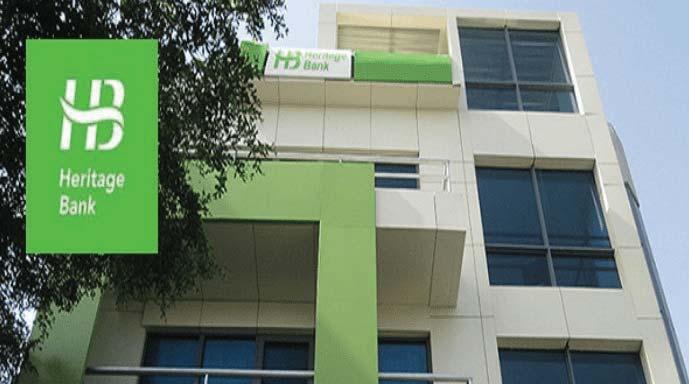
CBN’s short-term borrowing window highlighted persistent liquidity problems.
“Corporate governance has been a challenge as a number of the bank’s directors have allegedly been involved in a series of poor-performing insider transactions,” he warned in many of his informed commentary on the banking sector.
Awoyemi argued that at least four other banks “are in situations requiring swift CBN intervention; therefore, the CBN and the NDIC will have to shift regulatory/ intervention gear sticks to ensure that the banking system works with minimal disruption.”
Unlike Heritage Bank, the apex bank did not spare some players for breaches.
For instance, in 2021, the CBN dismissed the entire board of First Bank of Nigeria and FBN Holdings Plc on allegations of bad credit, non-performing insider loans, and corporate governance malpractices.
Similar action had been taken three years earlier, precisely in 2018, when Skye Bank Plc’s banking licence was revoked, and this necessitated the establishment taking on the assets and certain liabilities of the now-defunct Skye Bank Plc.
That Skye Bank had some challenges came to limelight in early July 2016 when CBN as a regulator, intervened in the bank. That intervention led to the resignation of the bank’s Board of Directors chairman, all non-executive directors, the managing director/chief executive, the deputy managing director, and the two longest-serving executive directors on the management team. The intervention also resulted in the appointment of a new board and management by CBN to ensure the bank’s survival.
able corporate governance lapses;” “in-
ability of the bank to meet critical prudential and adequacy ratios” and prolonged liquidity problems that occasioned the bank’s ceaseto remain in operations.
However, the coming on board of the new management of the apex bank last year brought a new regime that was not ready to pamper any institution that is not ready to justify its presence on the list of Nigerian banks.
This is where the recent decision by the CBN to dissolve the boards and management of Union Bank, Keystone Bank, and Polaris Bank echoes a pattern of regulatory interventions to ensure the stability and integrity of the Nigerian banking sector. The CBN’s actions underscore practices and governance standards.
Lessons from Heritage Bank’s Fall Head of Financial Institutions Ratings at Agusto & Co, Mr. Ayokunle Olubunmi said, “Heritage Bank has been struggling for a while now. The bank’s capital has been persistently below the CBN minimum threshold.
“I believe that the revocation is meant to send a message to the banks that the CBN will not hesitate to revoke the licence of any bank in breach of the CBN regulations. It could also sanitise the banking industry to an extent.”
He noted that the revocation could improve banks know that their licences could be withdrawn and would have to comply with the various regulations.
Olubunmi, further stressed that the recent increase in the NDIC coverage would provide some comfort to depositors.
Analysts from Nairametrics believe that the shift in approach is likely to bolster public conthe CBN’s commitment to a healthy and stable
Another lesson is that the new policy shift will shake up how the sector perceives the
CBN. Banks will become more circumspect about their lending practices and handling
“They will likely adopt more stringent lending criteria and ensure that bad loans are recovered promptly.
“Furthermore, many banks may face fresh audits, and a sector-wide stress test might be on the horizon, particularly in the wake ofpanies due to high-interest loans,” they said. There is also the likelihood that the oil and gas and manufacturing sectors, which many banks have reported as being under strain, will be of special focus.
They argued further that smaller banks that pursued aggressive lending and high-risk strategies would also be feeling the pressure, anticipating potential regulatory actions.
The analysts said that bank customers may become concerned and anxious about which institution might be next. This, according to them highlights the need for the CBN to swiftly reassure Nigerians that the remaining banks
Heritage Bank Plc began its operations in Nigeria as a regional bank on March 14, 2013. It acquired the licence and structure of the old Societe Generale Bank of Nigeria, which the CBN closed down for failing to meet the capital requirements of N25 billion or $155 million for a national bank in January 2006.
In October 2014, the Assets Management Corporation of Nigeria (AMCON) announced that Heritage Bank had emerged winner of the bid for the defunct Enterprise Bank. Heritage Bank had successfully met all the terms and conditions set by the CBN and AMCON towards owning 100% shares in Enterprise Bank. It inherited over 160 branches, over 177 ATMs, and 2000 POS terminals spread across major markets and commercial centres in the country. This move automatically transformed Heritage Bank from a regional to a national bank.

TTokunbo Fasoro has always had a deep love for fashion. As a young girl, she was captivated by her mother’s impeccable style. Her mother, a fashion icon in her own right, set the pace with her chic and sophisticated wardrobe. With dreamy eyes, Fasoro watched her mother dress up and dance in front of the mirror every morning, radiating confidence and joy.
It was during these magical moments that Fasoro first understood that fashion could be an elegant blend of class, comfort, and decency. She marvelled at how her mother effortlessly combined these elements, stepping out each day with unmatched grace and poise. The more she observed her mother’s style and pride, the deeper her fascination with fashion grew. She began designing perfect outfits in her mind, complete with matching shoes, handbags, and jewellery for every occasion. Imagining herself in these stunning ensembles, she revelled in the fantasy and beauty of it all. This daily ritual of creative imagination and admiration for her mother’s style sowed the seeds of a lifelong passion.
At 17, Fasoro began working alongside her mother in the fashion business, gaining invaluable hands-on experience and learning the industry’s intricacies. When she entered university, she transformed her passion into a thriving side hustle, designing and creating outfits for herself and her friends. Balancing her studies with her burgeoning fashion business, Fasoro honed her skills and built a small but loyal customer base. Most of the money she earned went towards supporting students who couldn’t afford their fees and purchasing educational materials.
This entrepreneurial and philanthropic spirit helped Fasoro build an enviable reputation. “You can say I am a woman of many parts,” she said, reeling off her numerous qualifications.
As a renowned international human resources professional, Fasoro boasts a career that spans over a decade with numerous qualifications to show for it. She holds a BA and a Master’s degree in Personnel Psychology (MPP), professionally certified by the Human Resources Certification Institute (HRCI) in the United States as a Professional in Human ResourcesInternational (PHRi), an associate member of the Chartered Institute of Personnel Management Nigeria (CIPM), a certified professional from the Society of Human Resource Management (SHRM-CP), and professionally certified by the Global Professional in Human Resources (GPHR). She is also an alumnus of the prestigious Pan Atlantic University Lagos, Nigeria, where she was trained in Entrepreneurship Management. She sits on the Board of Directors of Women in HR (WIHR).
“As a Passion to Profit strategist, I have empowered countless women to start businesses they love, generously sharing my knowledge and experiences,” she added. Her expertise took her across the globe, where she not only excelled in her profession but also discovered her true calling: helping others turn their passions into profitable businesses.
Her passion for helping others led her to athor the bestselling book ‘The Persistent Woman: Overcoming 20 Years of Rejection.’ The book inspires women to break through all limitations to live a purposeful life.
“Growing up, I struggled a lot with low self-esteem and faced rejection from various people in my life,” she said, explaining the inspiration behind the book. “There were moments when it felt like no matter what I did, I wasn’t good enough, and people would come to my parents, telling them to give up on me because I wouldn’t amount to anything.
“These experiences left me feeling worthless and filled with self-doubt, but they also ignited a fire within me to prove them wrong and to show that I was capable of achieving greatness despite their doubts. Through resilience, determination, and a relentless pursuit of my dreams, I was able to break through these limitations and overcome my struggles, which led to writing the book ‘The Persistent Woman: Overcoming 20 Years of Rejection.’
I wanted to inspire other women to strive towards achieving their dreams notwithstanding the limitations they may face.”
Like the lioness she is, Fasoro rose above her limitations, shattering glass ceilings and encouraging other women to do the same. She never derailed from her dreams, dedicating herself to serving others, as seen in her work with women and girls in the slums of Oworo, Lagos, Nigeria, teaching them essential skills for financial independence.
All the while, she never left her fashion business; she always made time for it.
Pivoting Clara’s Signature in Nigeria in 2021, was a major step in the right direction for Fasoro, but she wanted more. She wanted to build a global brand. Motivated and inspired by iconic brands like Prada and Elie Tahari, she desired opportunities in the global marketplace and hoped that one day her dream would become a reality.
When the opportunity to move to the UK arose, Fasoro was not immediately excited. She had built a significant presence in Nigeria and feared starting from scratch in a new country. For the first month after her arrival, she felt stuck and cried almost every day, grappling with the daunting prospect of beginning anew in a foreign land.
“As a woman of faith, I sought guidance and solace in my spiritual beliefs. One day, I heard a voice that changed everything: ‘You are not starting from the bottom of the pyramid; this is your opportunity to make the dream you have had since you were 15 come true.’ This revelation ignited a new sense of purpose and determination within me,” she said.
With renewed vigour, Fasoro embarked on the journey to create Lioness by TF, her new fashion brand. Seeking support and guidance, she found a seasoned consultant who immediately understood her vision and partnered with her to initiate the process. She also received unwavering support from her husband and family in the UK.
With a vision “to see women win using fashion as a tool,” Lioness by TF quickly became a success story, affirming that she had not started from the bottom but had positioned herself well on her way to the pinnacle of the fashion world. The fashion brand is distinguished by its fresh style of design, iconic fabrics, and consistent high quality, making luxury fashion accessible to its global customer base.
Running a fashion brand in the UK has its challenges. For Fasoro, it is securing funding and managing the high cost of operations in the UK.
“The expenses associated with materials, manufacturing, and logistics are significantly higher compared to Nigeria. This financial strain has made it challenging to scale the business while maintaining quality and affordability. Despite these challenges, I remain committed to my vision, continuously seeking innovative solutions and strategic partnerships to sustain and grow my brand,” she said.
A major accomplishment, however, for the fashion entrepreneur is the acceptance into Wolf & Badger, a global platform that is home to more than 2000 independent brands in the fashion and beauty industry, within a month of trading.
“This rapid acceptance was a significant milestone for Lioness by TF, as it validated the quality and appeal of my designs on a global platform,” she said.
“Secondly, during the launch, seeing women eagerly buying my pieces at the launch, rushing to ensure their sizes were not sold out was surprising. This rapid acceptance and enthusiastic demand validated my hard work and vision for Lioness by TF, marking a significant milestone in my journey and reinforcing my belief in the global potential of my brand.”
Having dedicated her life to helping women in their careers and businesses, this venture marked a new chapter for her to empower women through fashion.
Lioness by TF is deeply committed to supporting both local and global communities. A percentage of the brand’s



profits goes towards empowering women and the girl child in the slum of Oworo, Lagos, Nigeria. Through the NGO founded by Fasoro, Bi Empowerment Initiative, they provide essential skills, mindset transformational training, and start-up capital. These efforts help women achieve financial independence and break free from their environmental limitations. The aim is to create lasting positive change and foster a community of empowered, resilient women. Lioness by TF utilises high-quality fabrics and employs local artisans, ensuring each piece is timeless and durable. By

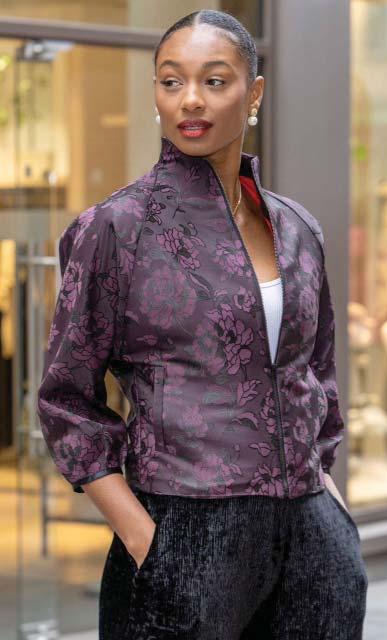
proving that with determination and belief, dreams can indeed come true.
with KAYODE ALFRED 08116759807, E-mail: kayflex2@yahoo.com
...Amazing lifestyles of Nigeria’s rich and famous

Dumo Lulu-Briggs, a name synonymous with ambition and perseverance, is experiencing a remarkable transformation in his fortune. Although his political journey has had its challenges, his strides in the business sector, particularly in the oil and gas industry, are nothing short of extraordinary.
Lulu-Briggs began his political career as the Social Democratic Party (SDP) candidate for the House of Representatives, AkukuToru Federal Constituency, in 1992. His political pursuits saw him take on roles such as the National Assistant Legal Adviser for the Grassroots Democratic Party from 1996 to 1998. More recently, he was the Rivers State All Progressives Congress (APC) governorship aspirant in 2018 before switching to the Accord Party, where he ran as the 2023 governorship candidate for Rivers State. Despite these efforts, political success eluded him.
In stark contrast to his political endeavours, Lulu-Briggs’ business acumen has shone brightly. As the driving force behind Platform Petroleum, a leading indigenous oil and gas firm in Nigeria, he is currently spearheading an ambitious plan to significantly boost Nigeria’s oil output. With a vision to invest up to $1 billion, Lulu-Briggs aims to produce 10,000 barrels of oil and 50 billion cubic feet of gas daily by 2025. This strategy involves bringing three marginal fields online within the next year, demonstrating his commitment to transforming Nigeria’s energy landscape.
With Lulu-Briggs, Platform Petroleum’s success story has always been rooted in strategic partnerships and innovative financial strategies. Under his leadership, the company’s production has grown from 2,000 barrels of oil per day (bpd) to over 3,000 bpd, with cumulative outputs surpassing 12.3 million barrels and 118 billion standard cubic feet (scf) of gas.
Looking ahead, Lulu-Briggs is steering Platform Petroleum towards even greater heights. With the targeted 10,000 barrels of oil and 50 billion cubic feet of gas per day by 2025, Lulu-Briggs’ unwavering dedication to enhancing Nigeria’s oil production capacity and his broader vision for the country’s energy sector is clear for all to see. Thus, as he continues to make giant leaps in the oil and gas industry, LuluBriggs is not only enhancing his fortune but also contributing significantly to Nigeria’s economic growth and development.

Zenith Bank Plc, long known for its leadership in the Nigerian banking sector, is poised to usher in a new era of excellence under the leadership of Adaora Umeoji, who has officially become the Group MD and CEO. As the first female GMD/CEO of Zenith Bank, Umeoji’s appointment marks a significant milestone, positioning the bank to continue its legacy of innovation and success.
Despite trailing behind institutions like Fidelity Bank, Unity Bank, and others in appointing female CEOs, Zenith Bank’s strategic decision to elevate Umeoji demonstrates its commitment to gender diversity and leadership excellence.
Umeoji’s track record is a testament to her unparalleled brilliance and leadership capabilities, which align perfectly with Zenith Bank’s ambitious goals.
Umeoji takes over from Dr. Ebenezer Onyeagwu, who concluded his five-year term on May 31 with a distinguished record of service. Her ascent to the top role follows her tenure as the Deputy MD since October 28, 2016, during which she amassed nearly three decades of experience in the banking
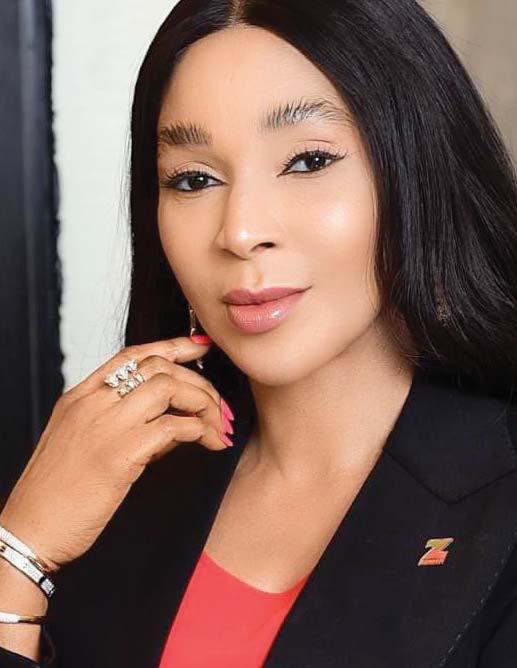
sector, with 26 of those years at Zenith Bank. Umeoji’s journey in the banking industry began over 30 years ago, fresh from university
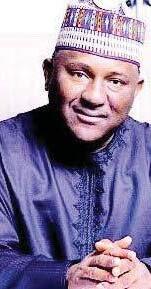
and eager to make her mark. Her early zeal and impressive results quickly established her as a standout professional, eventually becoming a pivotal part of the Zenith family. Her appointment as GMD/CEO not only honours her dedication but also corroborates Zenith Bank’s tradition of promoting internal talent and ensuring seamless executive transitions.
Whether it is with respect to having impressive academic credentials or professional merits, Umeoji ticks all the boxes. Her influence even extends beyond banking into philanthropy and humanitarian efforts through her NGOs, the Pink Breathe Cancer Foundation and the Adorable Foundation, which focus on cancer patient care and education for indigent children, particularly the girl-child.
As Umeoji takes the helm of Zenith Bank, the industry watches with keen interest. Her leadership is expected to herald a transformative phase for the bank, reinforcing its position as a trailblazer in sustainable banking and gender diversity. With her at the steering wheel, Zenith Bank is not just ready to compete but to lead and excel in the everevolving banking landscape.
Great things are coming to the Confluence State, Kogi. This is a given since in a commendable act of generosity and foresight, Nigerian billionaire AbdulSamad Rabiu has undertaken the construction of a stateof-the-art research institute at the Federal University Lokoja (FUL), Kogi State. While Kogi is often considered a forgotten corner of Nigeria, Rabiu’s initiative shows his commitment to diversifying educational efforts and addressing regional disparities.
Through the AbdulSamad Rabiu Africa Initiative (ASR Africa), Rabiu is channelling significant resources into this project as part of the Tertiary Education Grants Scheme (TEGS), funded by ASR Africa’s $100-million social development and renewal fund. This move is poised to transform the educational landscape of FUL, providing a much-needed boost in research infrastructure.
Rabiu’s efforts have been met with widespread acclaim, reflecting his reputation as a forward-thinking
philanthropist. By selecting FUL for this transformative project, Rabiu not only recognizes the potential of the institution but also addresses the critical need for enhanced educational facilities in underrepresented regions. His vision is to create a platform for scientific advancements in physical and life sciences, thereby fostering innovation and academic excellence.
In reality, there’s nothing truly jawbreaking about this. Rabiu has always been one for positive change and balance. This is why he established ASR Africa in 2021, dedicating it to providing sustainable, impact-driven solutions to developmental challenges in health, education, and social development across Africa.
At present, Rabiu’s philanthropic efforts extend beyond FUL. Twenty-two other tertiary institutions across Nigeria are set to benefit from ASR Africa’s grants. This broad-based support only goes to show how deeply Rabiu is committed to holistic educational development, and the goal of which is to boost academic excellence nationwide.
The Minister of Power, Bayo Adelabu, recently orchestrated a grand celebration for his wife, Oluseyi Adelabu, as she marked her 50th birthday. The event was a star-studded affair, attended by prominent figures from Nigeria’s corporate and political circles. With this celebration, Adelabu’s deep commitment to his wife of about 29 years was even more obvious, as she has been a steadfast pillar of support throughout his career.
The Ibadan-born Oluseyi, a mother of four, is admired for her low-key yet impactful presence. During Adelabu’s up-and-down adventures as he sought to be governor of Oyo State, she stood
by him, earning widespread respect and affection. Moreover, her grace and humility have endeared her to many, making her a revered figure in their community.
For Adelabu, this 50th birthday celebration was more than just a milestone for his wife; it was a much-needed respite from a challenging year. As Minister for Power, Adelabu has faced significant obstacles, including persistent issues with Nigeria’s power supply and public dissatisfaction over tariff hikes. These challenges have been compounded by critical public opinion, with several recent polls rating him as one of the worst-performing ministers under President Bola Tinubu’s administration. Despite these professional pressures, Adelabu’s dedication to making his wife’s
birthday special reflects his personal resilience and commitment to family. The event brought joy and a sense of normalcy amidst the tumultuous demands of his ministerial duties.
Ultimately, Lady Oluseyi’s 50th birthday was not only a celebration of her life and contributions but also a testament to the enduring strength of the Adelabu family. It highlighted the importance of personal happiness and support systems in managing public and professional challenges. For Adelabu, the occasion was a ray of sunshine, a moment to cherish and draw strength from as he continues to tackle the formidable tasks ahead in his role as Minister of Power.
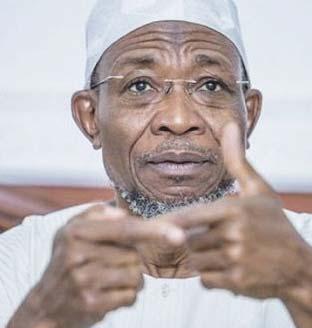
When hope festers, do hearts bleed? Indeed, it appears so for some in the report that a significant rift is emerging between Rauf Aregbesola, former governor of Osun State, and the influential political figures President Bola Tinubu and Chief Bisi Akande. This growing discord has culminated in Aregbesola launching a new faction, the Omoluabi
Progressives Caucus, signalling his intent to reshape the political landscape of Osun ahead of the 2026 governorship race.
The rift appears to have stemmed from Aregbesola’s increasing disillusionment with the leadership of President Tinubu and Chief Akande, a leading figure of the Osun State All Progressives Congress (APC). Aregbesola, who once stood firmly by their side, now allegedly feels marginalised and believes that the leadership has strayed from the principles he holds dear.
While the exact origin of the issues is complex and multifaceted, it appears that Aregbesola initiated the public display of discontent. His formation of the Omoluabi Progressives Caucus and the symbolic removal of Tinubu and Akande’s images from his political headquarters demonstrate his apparent dissatisfaction and determination to carve out his own political path.
The seriousness of the allegedly impending split cannot be understated. It represents a
Governor Lucky Aiyedatiwa of Ondo State has faced continuous challenges since assuming office. Despite recently securing victory in the gubernatorial election, his journey has been fraught with opposition and internal party conflicts. However, recent developments indicate a positive shift as more allies rally behind him, signalling a potential turning point in his administration.
In a significant boost for Aiyedatiwa, seven aspirants from the All Progressive Congress (APC) have reportedly endorsed his position as governor and the reconciliation efforts within the party. Among these aspirants are Hon. Mayowa Akinfolarin, Prof. Dayo Faduyile, Hon. Jimi Odimayo, Engr. Funmilayo WaheedAdekojo, Prince Diran Iyantan, Soji Ehinlanwo, and Morayo Lebi. These leaders, who initially contested the governorship primary, had previously criticised the election’s conduct, alleging irregularities orchestrated by the primary committee under Kogi State Governor Ahmed Ododo.
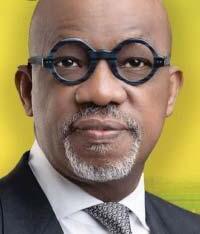
Abiodun
Ogun State, under the brilliant and dynamic leadership of Governor Dapo Abiodun, is poised for a transformative leap with the imminent commencement of oil
Even more shocking is the fact that Senator Jimoh Ibrahim, representing Ondo South Senatorial District, recently withdrew his lawsuit against Aiyedatiwa which sought to annul the primary election results. Reportedly, Ibrahim decided against going through with the case after a personal intervention by President Bola Tinubu. In other words, Tinubu might be one of Aiyedatiwa’s backers.
Despite these positive developments, the APC still faces internal challenges. Political observers remain cautious, believing that not all grievances within the party have been resolved. Some members may choose to remain passive rather than actively support Aiyedatiwa. But much of the waves against him have been settled.
It must be noted that among the candidates for the November 16 governorship election are prominent figures from major political parties, including the APC’s Aiyedatiwa with his deputy, Olayide Adelami, and the People’s Democratic Party’s (PDP) Agboola Ajayi with
fundamental division within the APC in Osun, with Aregbesola’s Omoluabi Group poised to challenge the mainstream faction led by former governor Gboyega Oyetola. The implications are significant in Osun APC. APC members in the State have ample reason to be concerned. The internal discord threatens to undermine the party’s cohesion and effectiveness in Osun State. The rivalry between Aregbesola’s faction and Oyetola’s mainstream group could lead to infighting and a loss of focus on the broader political objectives. If unresolved, this rift could diminish the APC’s chances of reclaiming the governorship, and give the ruling Peoples Democratic Party (PDP) an advantage in the upcoming 2026 governorship race.
So, in the face of these implications, how much of the problem is a matter of festered hope and how much is about a man’s pride? Maybe they are the same. Whichever the case, Osun APC could be in for a long and difficult ride come 2026.
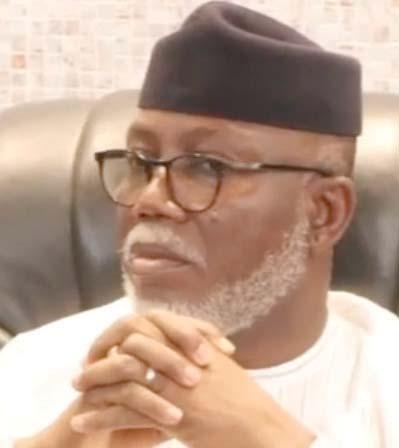
his deputy, Samuel Ogunmusi. The Labour Party also poses a significant threat, with its candidate Ayodele Olorunfemi and his running mate, Olabisi Adu, vowing to take back the state.
and gas exploration by the Nigerian National Petroleum Company (NNPC) Limited. This significant development is set to propel Ogun into the league of oil-producing states, unlocking substantial economic opportunities and benefits for its residents.
Governor Abiodun’s relentless efforts and strategic vision have been instrumental in attracting the NNPC’s interest in Ogun’s oil and gas potential. His proactive engagement with key stakeholders in the oil and gas sector underscores his commitment to transforming Ogun into an economic powerhouse.
In a recent meeting at the governor’s office, attended by key stakeholders in the oil and gas sector, it became clear that the time has come for Ogun to fly with its high potential for hydrocarbon discoveries in Ogun. The state, being part of the Dahomey Basin, holds promising prospects for substantial oil deposits, so Abiodun has gotten the federal government to seriously commit to exploration activities for his people.
Abiodun’s business smarts shined through,
impressing even Mele Kyari, the boss of NNPCL. Was it how Abiodun cited many studies that affirmed the basin’s potential for commercial success, or how he emphasised Ogun State’s strategic advantages, including ease of access, low operational costs, and a supportive community and government?
It has to be said that Abiodun knows how to play the cards, especially how he noted the broader implications of successful exploration, such as bitumen extraction, which could reduce Nigeria’s import dependency and foreign exchange expenditure. With such a far-thinking leader, what more can the people ask for?
Indeed, Ogun is set to realise its potential as an oil-producing state. Under Abiodun’s leadership, this development promises not only to enhance the state’s revenue but also to bring substantial economic benefits to its people, introducing a new era of prosperity and growth under the governor’s exceptional guidance.
To many, Prophet Temitope Balogun Joshua, fondly known as TB Joshua, was more than just a preacher; he was a peacemaker and a humanitarian whose influence stretched far beyond the walls of his church. Even in his absence, his wife, Evelyn, and the rest of his family are carrying forward his legacy, continuing his work of compassion and service to humanity.
TB Joshua passed away on June 5, 2021, at his home in Lagos, shortly after his Saturday night teaching. The cause of his death remains undisclosed, but his family have not forgotten him. In their eyes, his legacy of love, compassion, and service endures and will continue to serve as a guiding light for generations to come.
Indeed, TB Joshua’s humanitarian efforts reached across continents as he provided aid and support to those in need. From Nigeria to Latin America, his charitable initiatives touched countless lives, offering food, shelter, and medical assistance to the less fortunate. During crises like the 2014 Ebola outbreak
in West Africa and natural disasters in Haiti, the Philippines, and Indonesia, TB Joshua’s organisation, Emmanuel Global Network, mobilised relief efforts, bringing hope and healing to affected communities.
Education was another cornerstone of TB Joshua’s vision for empowerment. He invested in scholarships, schools, and vocational training programs, ensuring that young people had the opportunity to build better futures. He also mediated conflicts involving political leaders and rebel factions. Records show his involvement in peace processes in South Sudan, Sierra Leone, and Liberia.
In the face of such achievements, it is amazing that his wife, Evelyn, is willing to walk in his shoes. She is determined to continue his legacies, reinforcing TB Joshua’s apparent lifelong goal to see the world a better place. Already, her marks are being felt in her late husband’s native state, Ondo. Clearly, more is set to come.
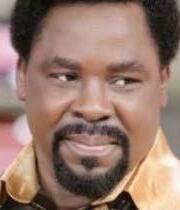

Under the most extreme of circumstances, even the stripes of the zebra may fade, let alone the tendencies of the affluent. This is why it is not so surprising that against the grain of his once highprofile lifestyle, Musa Bashir, the MD of Rahamaniyya Oil and Gas, has retreated into the shadows. Known for his dynamic presence in the oil and gas sector, Bashir’s sudden aversion to the spotlight has left many industry watchers and social commentators speculating.
Bashir, once a staple at highprofile events and business gatherings, now seems to be avoiding any situation that might attract the prying eyes of the media. Reports suggest that he has been meticulously avoiding individuals with cameras and professional-looking tags, possibly to elude those seeking to capture the latest scoop about his life and business activities.
In the opinion of social commentators, Bashir’s retreat might not be unrelated to the still-fresh reports of Bashir’s legal troubles in the United Kingdom.
The fallout from these alleged legal woes appears to be a major factor in Bashir’s decision to maintain a low profile. His reported sentencing, coupled with the negative publicity surrounding the case, has likely prompted him to avoid the limelight and steer clear of potential media scrutiny. This move is often used by many political and corporate figures to manage public image and mitigate further damage.
Industry insiders are divided on what this means for the future. Some suggest that Bashir might be focusing on resolving any outstanding legal issues and restructuring his business operations. Others believe this low-profile phase could be temporary, with Bashir likely to re-emerge once the legal and reputational dust settles. In reality, only time will tell.
Nasir El-Rufai has lost appetite, abi who will still be able to eat with the kind of allegation that has been flung on his skinny neck by the Kaduna State House of Assembly. They have said that the man “chopped” over N400billion and used heavy words such as ‘money laundering’ and ‘abuse of office’ on him. They now recommended that he be prosecuted.
As a well-known crisis manager, my first advice is to ask his errant son to stay clear. This is not the time to be abusing people and be opening eye like someone who has taken “kparanga” and be making all sorts of accusations. If you ask me, I will say that his attitude has contributed in no small measure to this matter.
Let me confess first, in recent times, I have been very harsh on the honourable minister not only because I believe he is not very aggressive enough in his tackling of the myriad of problems the economy is throwing up, but because the only play of mine that he has watched, he came with a complimentary ticket. This is my real grouse with him and not because all economic indices have gone haywire under his watch. But seriously, I watched him very intently for two minutes on that last TV interview and I must say, he did not come out with the Buhari’s body language that used to move the stock exchange. What I gleaned from that brief encounter with him was that of a man who was not really sure of himself or what was expected from him.
Let me help, egbon: you have to speak very boldly, look into the camera and speak like Abacha. Seriously, communication and a sense of sure-footedness in these things go a long way. But if you are speaking with your eyes darting here and there, people will be thinking that this man has seen things that if he talks, heaven will fall. The confidence level in your public

Secondly, Nasir – I go call am first name now abi, shebi he get problem- should immediately run to the chairman of the governors’ forum and explain his side and allow that one to lead a mediation council. The way I am seeing this Kaduna State people, they really mean to embarrass oga o.
Oga’s people have issued the usual statement denying all wrongdoings and stating among others that the people who served under him have all faced the panel because of the confidence they had in the system and bla bla bla.
See ehn, in things like this, you have to move very delicately and strategically. We all know that this
carriage must be ramped up. Show that you are in charge and every other thing will fall into place. Furthermore, I am happy that you have finally come out to confirm as reported that you have been paying subsidy. You see, I didn’t understand why all the “boju boju.” There is no way that the only price that has been stable since you came in was fuel price and we will not know that some kind of subsidy was being paid. Even condoms have gone up by over 500%. Something that we used to buy at N20 when we started this career is now over N3,000. The way it is going, the cost of condoms will soon pass the cost of treating STDs and at that point…
Secondly, I am happy that you have submitted a master plan to curb inflation. I have not read the report yet but I saw you submitting it to Oga. You see why I have problems with you, something like that, you did not send it to me to go through before submitting it now. If it does not work now, you will start blaming your village people.
My brother, let me tell you very categorically, that your performance record in this past year has been less than stellar and if I am going to score you, I’ll give you 23% simply because I think you are targeting me
is the usual pantomime that goes on between politicians and really nothing comes out of it. I think it was Obasanjo who was the last person to jail a heavyweight politician but that said, while this drama is still going on, let us just for a second believe that the Kaduna State Government will go the whole hog on this and advise Mallam accordingly. Mallam, do not be worried, you are innocent until proven guilty by a competent court.
Whatever it is that Oga you have done to annoy your successors, kindly go and appease them even if it means sending them rams and virgins so that we can be spared all this drama because we all know how it will all end. Thank you.
in this your poor performance. The cost of hotel rooms trippled, diesel cost trippled, condom cost as earlier mentioned trippled, cab fare to bring associate to the venue of “meeting” trippled, cost of bleaching cream trippled, cost of hair trippled, cost of drinks trippled, Mr. Edun how exactly have I offended you? Please, what exactly have I done wrong that you do this to me? Kai.
AJURI NGELALE VS BAYO ONANUGA: AN INCONVENIENT MARRIAGE
These two remind me of the famous comedy duo – Papi Luwe and Aderupopo with the way they are going and this is what you get when you turn appointments into a reward scheme.
I have always stood my ground that in the Nigeria of today, Mr. Onanuga cannot be in the mix of things and in that capacity, the man should just go. An expert in guerrilla journalism who fought the military to a standstill? He should be given a medal of honour and retired with full benefits. He has served judiciously well.
This is a totally different epoch. This is a fast-paced, digitally enhanced epoch where thinking on your feet and pushing technology to
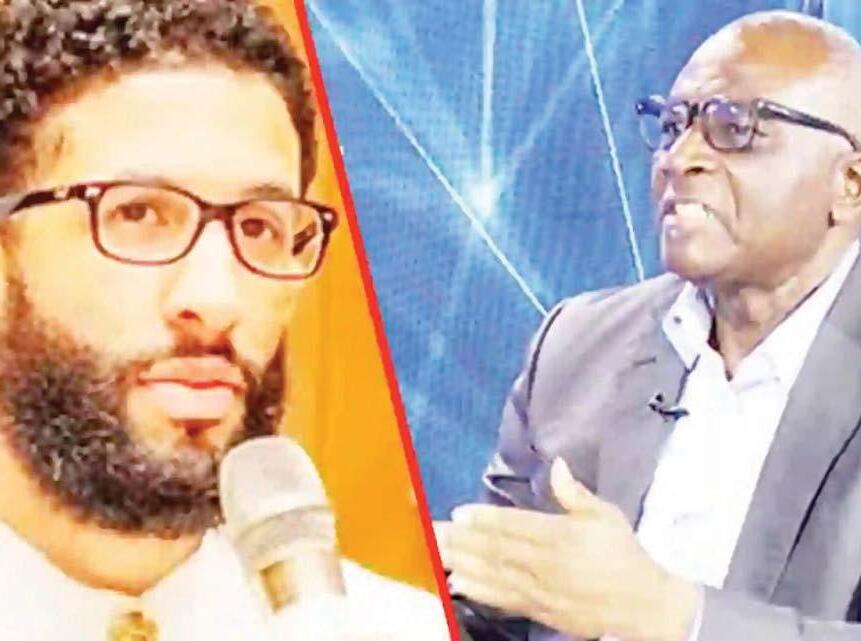
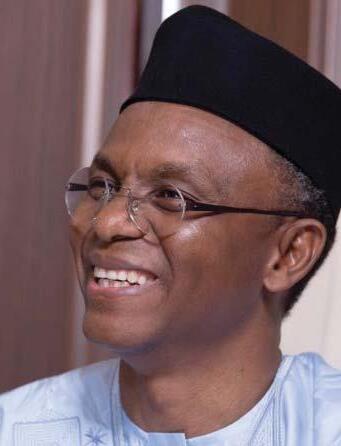
achieve your set purpose is required. Onanuga at Aso Rock is like leaving my papa in a banking hall as bank manager today; he will run mad with the tech gizmos of the Fintech firms. Ngelale on the other hand should be contesting for Big Brother Nigeria. He will be a favourite, especially in the bathroom scene with that lovely skin. His immaturity and eagerness to please are all so glaring. The missteps are horrendous and he does not come with the calmness and depth of managing communications and information at that level.
Sadly, while these two are busy with their shenanigans, the government is taking a beating. Kai, the public rating of this administration is the lowest since the end of the military regime. Even Abacha may begin to look better if it continues like this. Mr. President sir, can you kindly do yourself a favour by sacking these two and bringing some very wellqualified communications experts who understand the fine points of crisis management and positioning? Let’s not wait until these two allow Nigerians to start pelting you with tomatoes before you make a move. This presidency deserves better. I tell you. You can try Rufai Oseni as a replacement – Lol, I don mad.
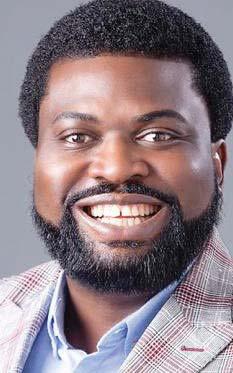
GOVERNOR DAPO ABIODUN, THIS IS NOT FAIR
Since His Excellency started wearing those round glasses, he does not take jokes o. Any small attempt to yab him, his people will finish you o. Come and see how they finished my egbon, Ladi. That one, still dey vex from elections, went to Oyo State to watch them commission 77km of road and instead of him to just eat the amala that they gave him there and keep quiet, he started talking. He said that Dapo was launching a footpath and gutter and making mouth. Kai! If you know Dapo very well, you don’t taunt him like that o. Dapo does not turn the other cheek o. It is people like Umo Eno in Akwa Ibom State and maybe AbdulRahman AbdulRasaq in Kwara that used to just turn their cheeks and smile but not Dapo. My people, they threw a sink at Ladi o. They called him an overfed brat amongst others. They asked him if he had managed his family not to talk of the six million p eople in Ogun? They portrayed him as an “oaf” and someone who is still feeding from his father.
Mbok, the abuse was too much for such a tiny offence. As I read, I was just screaming -ahhhh Dapoooooooo, eleyiiiiooooooo !!!!!!
Eleyi of Ogun oti kpa egbon Ladi ooooo… na small remain, they would have told us that it is his father’s nanny that is bathing him o. I have learnt not to be yabbing Dapo again o. His machinery for return yab is too lethal. From his Publicity Secretary of Ogun APC to this one who released this statement calling Ladi an overfed brat, their mouth is not good o.
My advice to Ladi is not to attempt to fight back o, he should just go and take his bath, take Panadol and switch off the lights and sleep, make BP no catch am. Since Eleyi’s people called me Amala buka eating writer, I don dey avoid Dapo and his team. Mbok, Ladi, who send you this kind assignment? See as they finish you. Ma bi nu egbon mi.
BISMARCK REWANE’S CARELESS WHISPERS
Ok, this man has just scattered everything. He just stood there in his jerry curl and proclaimed that Ghana is now richer than us. See, we as Nigerians can take anything but not this one. He said we are now the fourth largest economy; we didn’t say anything. He said so many things in a chat. As he was just reeling out the statistics, I was nodding my head wondering where his salon was. The hair is so smooth and shiny, brushed back as usual, making him look like that pastor in Eddie Murphy’s ‘Coming to America.’
Then he dropped the bombshell and I died. Ghana is richer than Nigeria. How can? Same Ghana that we got Ghana must-go bag from? Is this where Buhari and Tinubu have taken us to?
This is a disgrace and I sincerely hope that this Rewane man is joking o. This is why I like the military government. By now they would have given him frog jump till he redid that his yeye presentation. Giant of Africa, we are not even competing with South Africa and Egypt, it is this Ghana o. These Ghana people that will be saying ‘Charleeeee’ na him come rich pass
us. Ghanaaaaaaa!!!!! Rewane, are you for real or is it Peter Obi who sent you to talk this kind thing? What is this na?
Please, go back to that your presentation and look at the slide very well and clean your glasses and tell us that it was a joke. This is shameful and shameful to all of our leaders who have made this happen. I am in shameful tears. Ghanaaaaaaaaaa!!!!!!!. Kai.
AKIN ROTIMI: A SPOKESMAN FROM HEAVEN
Akin Rotimi is a friend and colleague. We worked together at the great BGL and till tomorrow, remain neighbours. Him dey downstairs and me I dey upstairs where we live. So you can imagine my joy when I saw his big fine face on the cover of THIDAY Style and they said he is the Spokesman for the House of Representatives.
You guys know that D’banj’s hit song with the line “It’s Don Jazzy again,” and he will jump on stage with legs wide apart, microphone firmly in his hands but in his crotch and he will be thrusting, making our ladies swoon and our men feel like throwing garbage on him?
That was exactly what came to my mind when I saw the report of my egbon the great Femi Otedola in his latest “wahala” with my friends at Zenith Bank.
Immediately, I saw the report, I jumped and shouted “It’s Femi again.”
We all followed his crusade for probity and fair practice in doing business, especially in his wahala with Transcorp. Today, the train has stopped at the doorstep of Zenith Bank. He is reported to
have raised queries on some transactions on his account by the bank and may have gone as far as involving the authorities, gunning for the very quiet chairman. This is a very sensitive issue because it bears on market perception since it is between two very high-profile entities. Markets, regulators and all will be watching very closely at the case to assess its impact on fair practice, transparency, and professionalism, amongst others.
This is a real baptism of fire on the new Managing Director of Zenith Bank whose table this file will be the very first that will be thrown at her as she resumes. My prayer is for an amicable resolution, these two entities are just right for the markets. We are in prayers.
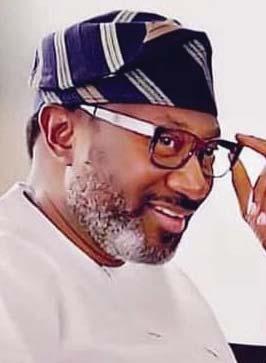
Akin has come a long way from his King’s College days to his Albert Okumagba-aided introduction to Dr. Fayemi from where he has built a very powerful political career that has taken him to this point.
It is instructive to note at this point that the legendary Okumagba had a policy of fanning out his best brains into the system. A lot of BGL guys went in as PAs and SAs of ministers, governors, and the rest and Akin was one of those who made Fayemi’s team.
It is also instructive to further note that of all of them, I think Akin is the only one who has built his own political career to the point where he has won elections and is now a spokesman for the House.
One of his first points of action was to counter Labour’s assertion that the National Assembly members’ wages and packages are not in tune with the economy, comparing it to minimum wage and true to type, he was quoted as saying that it was to incite public anger against his colleague.
My brother Akin, shhhhhhh!!!!!!! You guys are overfed cats, simple and short. Congrats my brother and well done.
If my life depends on understanding the game of chess, then make I kuku go join Chief Obafemi Awolowo for heaven and plan a new confab. But this young prodigy discovered in Port Harcourt seems to have taken the space by storm.
The 11-year-old young lady has emerged as the National Chess champion and to further bring her prowess to the world, my brother Yemi Edun’s Daniel Ford, the UK massive Real Estate giant, has decided to match her with Tunde Onakoya, the Guinness World Record Holder to a brilliant match that would be holding in Lagos on June 11, 2024.
According to Yemi who has just flown in for the match, the idea is to push the game of chess nationally, engage and empower youths through the game and further bring to international limelight the huge talents that exist in Nigeria.
As I watched the two in a practice match, all I saw was the fast movement of hands and the pressing of something beside the table by both of them. The whole thing come make me dizzy and hungry.
Mbok, can I ask one small question, abeg what is the difference between chess and draft, the one we dey play for Shomolu
PATORANKING HITS HARVARD
Reggae sensation, Patrick Okorie better known as Patoranking has gone to Harvard o. Not anyhow school o but Harvard where he finished a difficult course, majoring in media and entertainment. Pato as he is well known, has always been different from the grain. His carriage and deep lyrics show a man who was weaned out of a different cloth. A career with no blemish or scandal has now been garnished by the sweet colouring of academic achievement. I can only at this point say a big thank you to the great star and to ask if he would be having a masterclass for his other colleagues to at least recoup some of the money he paid on school fees. Congrats my brother.
Over dinner with a coterie of media professionals, the National Film and Video Censors Board’s recently appointed executive director, Dr. Shuaibu Huseini, dispelled concerns about his agency’s new regulations on films stifling creativity. Okechukwu Uwaezuoke reports
Surely, it’s about time—isn’t it?—that someone at the highest level of authority in the National Film and Video Censors Board voiced concerns about the alarming trend festering like a malignant sore in the local film sector. This worrisome trend, characterised by an unhealthy fascination with the gruesome and the morally repugnant, unequivocally takes the cake among the industry’s litany of transgressions. Previously unchallenged by regulatory oversight, the exaltation of smoking and the captivating allure of tobacco products, alongside the chilling portrayals of money rituals and ritualistic killings, have stealthily infiltrated the mindscapes of cinematic audiences like ominous shadows. This status quo persisted until the pivotal announcement on Tuesday, May 21, during which the Arts, Culture, and Creative Economy minister, Hannatu Musawa, greenlit the stringent “Prohibition of Money Ritual, Ritual Killing, Tobacco, Tobacco Product, Nicotine Product Promotion, Glamorization, Display in Movies, Musical Videos, and Skits” Regulations 2024. It had to be the incendiary word “prohibition”—one that is guaranteed to ignite passionate dissent within the creative community—that stirred the hornets’ nest. In a bid to douse the growing apprehension among the industry’s practitioners, the newly-appointed executive director of the National Film and Video Censors Board, Dr. Shaibu Huseini, sallied into a whirlwind of urgent meetings and strategic engage- ments. Among these endeavours was a carefully orchestrated dinner gathering with esteemed media professionals last Sunday, June 3, at an elegant boutique hotel nestled in a serene mainland neighbourhood of Lagos, setting the stage for a pivotal discussion on the industry’s future amidst mounting tensions and uncertainties.
Then, there is a prevailing ethos that underpins Dr. Huseini’s advocacies, which are akin to a resounding anthem, focused on the intersection of artistry and regulatory measures in the entertainment sphere. The executive director is resolutely committed to ensuring that new restrictions on smoking, tobacco, monetary rites, and ritualistic homicides in films do not stifle creativity. He insists on nuanced accommodations within the rules for smoking scenes, requiring meticulous execution and storytelling intent. Filmmakers are granted some leeway, especially for scenes driven by artistic integrity or historical accuracy, albeit with a strict warning against glorifying tobacco or yielding to cor- porate pressures. While conceding that filmic portrayals can enhance cultural messages, he stresses the necessity of disclaimers to discourage mimicry. The absence of moral complexity or narrative redemption not only risks normalising odious behaviour but also blurs the line between fiction and reality.
“I really need us to understand this: I did not ban smoking scenes,” Dr. Huseini reiterated for what could have been the umpteenth time at different stake-

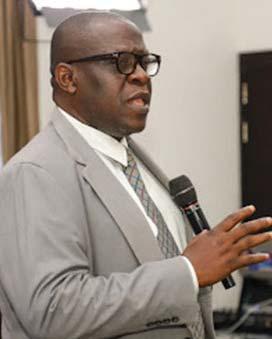
holder meetings. “I did not ban ritual scenes. There are aspects of our culture that you need to display. But what we are saying is that if you have to display these necessary scenes for historical accuracy, educational purposes, and, of course, to correct a negative lifestyle, you must warn people that these things are not real and that it is not a lifestyle to emulate.
“I’m telling you today that the regulation is not self-serving. I’m also telling you today that there is nothing anti-creativity about that regulation; there is nothing about suppression of creativity in that regulation.”
The whole point of the gathering, hosted with great partnership enthusiasm by Corporate Accountability and Public Participation Africa, a renowned advocacy group otherwise known by its acronym CAPPA, was to
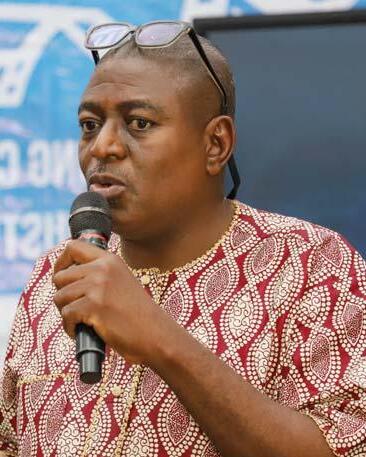
enlighten participants about the Regulations 2024. This significant legislation, eagerly anticipated for official approval by the federal government upon gazetting, promises to shape the future landscape of regulatory governance. Husseini, once a passionate perform- ing artist with a lustrous track record, made a resounding declaration about his role within the Censors Board, expressing his firm stance against suppressing creativity for the sake of censorship. With unwavering resolve, the executive director revealed ongoing efforts to revolutionise the National Film and Video Censors Board into a more progressive entity—a National Film and Video “Classification” Board. He vividly painted a picture of a future where the board shifts from its archaic analogue methods to a state-of-the-art digitised classification system. Infusing his words with determination, he pledged to lead the board towards greater responsiveness to societal needs, stakeholder input,
and the overarching directives of the federal government. Extolling the invaluable support received from CAPPA, he reinforced the board’s commitment to evolve and adapt to the ever-changing landscape of the film industry.
In his allusion to a separate but pivotal moment, CAPPA’s executive director, Akinbode Oluwafemi, eloquently em- phasised the immense importance of the recent national stakeholder engagement in Enugu. The event showcased the momentous unveiling of the Regula- tions 2024 and the Code of Practice, underpinned by the voluntary support of over 51 distinguished Nollywood stakeholders.
“One very important thing happened in Enugu that was not given wide publicity,” Olufemi disclosed. “There was also another document called the Code of Practice.
The Code of Practice is intended as a voluntary commitment by movie stakeholders to say, ‘We are pledging that we will comply with the intent and spirit of smoke-free Nollywood.’
“I’m happy to report to you that at that event, about 51 major movie practitioners and associations in Nigeria signed that Code of Practice, and we have their signatures documented. It included all the professional bodies in the movie industry. They were all in the room and pledged commitment to the regulations.”
Another speaker at the dinner, the in-country coordinator of the Campaign for Tobacco-Free Kids (CTFK), Michael Olaniyan, fervently stressed that while the regulations offer exceptions permitting smoking depictions in films, absolute adherence to health warnings is mandated to safeguard public wellbeing.Meanwhile, Dr. Huseini’s reputation as an industry expert not only benefited him but also set the stage for forthcoming engagements with stakeholders, building strong connections.
Editor
SMS: 08066066268 email:ejiofor.alike@thisdaylive.com
The failure of State Independent Electoral Commissions to entrench credible local government elections has sparked agitations for the transfer of their responsibilities to the Independent National Electoral Commission, Wale Igbintade writes
As part of measures to strengthen localgovernmentadministration in the country, the credibility of the State Independent Electoral Commissions (SIECs) has lately been questioned, due to their failure to conduct credible local government elections.
Under the 1999 constitution, SIECs have the mandate to conduct elections in the third tier of government, while INEC is responsible for the six area councils in Abuja and other elections.
Over the years, SIECs have failed woefully to conduct free, fair and credible elections, leading to the growing clamour for its abrogation.
Since Nigeria returned to democracy in 1999, LG polls have virtually become a charade. The results are usually predictable as the ruling party in each state usually sweeps the council polls, producing all the chairmen and councillors.
For instance, in the local government elections held recently in Gombe and Oyo states, the ruling All Progressives Congress (APC) and the Peoples Democratic Party (PDP) swept the polls while the opposition political parties cried out that the elections were a charade.
In the states where local governments are run by elected officials, it is a fact that the governors delivered between 95 and 100 per cent of all the seats to their cronies.
The mockery of democracy extends to the process that leads to the emergence of candidates for local government polls even within parties.
Instead of a competitive primary election, where aspirants sell their programmes to enable party members to evaluate their strengths against those of other contestants, a selection process devoid of internal democracy, in the name of consensus, is adopted.
Governors handpick their cronies, who may not necessarily have the capacity to administer local councils, as ruling parties’ candidates. And with pliant SIECs, state governments select local government chairmen and councillors in sham elections.
It is not surprising that many Nigerians have concluded that local government elections are too important to be surrendered to SIECs.
They have called on the National Assembly to amend the constitution and empower the Independent National Electoral Commission (INEC) to conduct all elections in Nigeria – federal, state and local councils.
It was against this background that the House of Representatives in 2021 considered transferring the conduct of council polls to INEC.
Section 197 of the Constitution establishes SIEC for each state, while the Third Schedule Part II establishes the functions of SIEC. Item 22 of the Exclusive Legislative List excludes elections into the local government from duties of the federal government.


In the eighth National Assembly (2015-19), the Senate passed an alteration that sought to achieve this same purpose. Then, the Ike Ekweremadu-led constitutional amendment committee made 32 recommendations.
Ex-Senator Dino Melaye, who represented Kogi West in the Senate, moved an amendment that SIEC should be abrogated.
That amendment was passed by the upper chamber but it was not passed by the House, hence it died in the course of that alteration.
It was also against this background that the Minister of Justice and Attorney General of the Federation (AGF), Lateef Fagbemi (SAN), called for the scrapping of SIECs. He identified the SIECs as the major impediment to development at the local government levels, advocating that their functions should be transferred to INEC.
Fagbemi, who spoke at a national discourse organised by the House of Representatives in collaboration with the UK International Development, explained that state governors have abused the rights of local governments by using SIECs to impose leaders on them through sham
elections.
Incidentally, it is Fagbemi who, on behalf of the federal government, filed a suit at the Supreme Court against the 36 state governments, seeking the enforcement of full autonomy of the local governments in the country.
He argued that the constitution did not provide adequate political autonomy for the states, hence the abuse by state governments. He explained that the failure of the constitution should be blamed for the subjugation of the local governments by states.
“The 1999 Constitution of the Federal Republic of Nigeria did not provide adequately for the political autonomy of the local governments. The resultant effects of these inadequacies are that the state governments have the discretion to determine the nature, content and direction of local government elections and political activities.
“The failure of the constitution to articulate a clear line of authorities to both the state and local authorities and the continuing debate over the involvement of state governments in distributing local government allocation from the Federation Account has affected the capacity of LGAs to
provide essential services at the grassroots,” he reportedly said.
Speaking further, the AGF said that most local governments operate “as an appendage of the state governments” due to the failure of the constitution.
“The constitutional provisions on State Joint Local Government Account (section 162 (5-8)) have placed the local government councils in a political bondage. Politically, due to the flaws in the electoral process in the country, what is obtained is a virtual selection and not the election of local government functionaries. Local government chairmen are always imposed on the people by the state governors,” he added.
Also, the Chairman of INEC, Prof. Mahmood Yakubu, recently raised concerns about the conduct of local government elections in the country by SIECs, describing the polls as mere coronations of ruling party’s candidates.
Speaking during a courtesy call by the executive members of the Forum of State Independent Electoral Commissions, the INEC chairman lamented that in some states, the commissions were only constituted shortly before elections and dissolved immediately afterwards, with critical functions often taken over by government officials. He highlighted the severe underfunding of SIECs, which forces them to rely on INEC for basic election materials like ballot boxes and voting cubicles.
“Unfortunately, the conduct of local government elections in virtually all the states of the federation has become mere coronation of candidates of the ruling parties. It is time to stop the coronation and conduct proper elections,” he said.
Yakubu urged the state governors to allow the SIECs to have greater capacity for independent action.
Though many Nigerians did not take Yakubu seriously, given INEC’s woeful performance in the conduct of elections under his watch in recent years, there is urgent need for reforms to improve democracy at the grassroots.
But an election observer group, Yiaga Africa, said abolishing the SIECs and transferring their responsibilities to INEC would overstretch the commission and undermine the autonomy of states
Its Executive Director of Yiaga Africa, Samson Itodo, urged the federal government to amend the constitution to safeguard the operational, administrative and financial independence of SIECs.
Itodo, however, called on state assemblies to come up with a legal framework that would guide the conduct of elections in their states, adding that state electoral laws should be harmonised with the provisions of the 2022 Electoral Act. Since the campaign for INEC to take over SIECs’ roles requires a constitutional amendment, Nigerians are keen to see whether the governors will support it.
A recent report that indicates that no fewer than 30 state governments of the federation spent N986.64billion on recurrent expenditures, includingrefreshments,sittingallowances,travelling, utilities, among others, in the first three months of 2024,hasshownthatthegovernorsarenotmaking sacrifices to reflect the current economic realities.
The states’ budget implementation reports, which were obtained from Open Nigerian States, a website supported by BudgIT, examined budget implementation data from 30 states.
A breakdown showed that the 30 state governmentsspentN5.1billiononrefreshmentsforguests, N4.67billion on sitting allowances to government officials, N34.63billion on local and foreign travel expenses,andN5.64billiononutilitybills,amounting
to N50.02billion in the first three months of 2024.
Thesub-nationalsalsopaidN405.77billionassalaries to their workers.
Otherrecurrentspendingitemscoveredinthereport includedtheamountspentonforeignanddomestictravel, Internet access fees, entertainment, foodstuff, honorarium/sittingallowance,wardrobeallowances,telephone bills,electricitycharges,stationery,anniversaries/special days, welfare, aircraft maintenance, and more.
The humongous expenditure simply shows how reckless and profligate some state governments are. When some of the governors were campaigning for their various seats, they bandied lofty developmental and infrastructural facilities but as soon as they came to power, they are preoccupied with how to make lives comfortable for themselves and their families.
The fact that many of the governors claimed that they can’t afford to pay N30,000 minimum wage but spend millions of naira on frivolous expenditures speaks volumes.
While the eyes of the majority of Nigerians are focused on thefederalgovernment,thestategovernorslivelikeemperors that cannot be questioned.
The report of the profligacy of some states is evidence of the absence of autonomous entities that can hold leaders accountable.
Even worse is fact that the profligacy is coming when the governments at all levels are asking the citizens to endure the pains of their policies.
Thesamestategovernors,whichhavebeenmakingheadlines since May 29, 2023, on how their predecessors ruined the economiesoftheirstatesaredeterminedtobreaktherecords of their predecessors with reckless expenditures.
Ejiofor Alike argues that for the persistent labour crisis to abate, politicians occupying public offices should also sacrifice their comforts to reflect the current economic realities
Last Monday, the organised labour shut down the country after it ordered a nationwide industrial action to protest against the current economic hardship occasioned by the removal of fuel subsidy, recent hike in electricity tariffs and the failure to reach a resolution on the contentious issue of national minimum wage with the federal government.
The two major labour unions, the Nigeria Labour Congress (NLC) and the Trade union Congress (TUC), plunged the entire nation into total blackout after it shut down the troubled national grid.
The last minute efforts to avert the industrial action through the intervention of the National Assembly had failed. But after an exhaustive deliberation that ended late Monday night at the Office of the Secretary to the Government of the Federation (SGF), the federal government and organised labour reached a common ground.
In their agreement, the two parties said President Bola Tinubu had indicated commitment to a National Minimum Wage higher than N60,000.
The resolution was signed on behalf of the unions by the President of NLC, Joe Ajaero and his counterpart in TUC, Festus Osifo, while the Minister of State for Labour and Employment, Hon. Nkeiruka Onyejeocha, and Minister of Information and National Orientation, Mohammad Idris, signed for the federal government.
Though the resolution was reached on Monday night, the workers did not immediately call off the strike until the following day, when it had crippled activities on the second day, against government’s refusal to approve the proposed N494,000 as minimum wage.
It was on Tuesday that the NLC and the TUC directed their state branches to ask workers to resume work immediately after they had resolved to relax the nationwide strike for the next one week.
Last week was not the first time the unions had embarked on such action.
Following President Tinubu’s declaration on May 29, 2023 that “fuel subsidy is gone” and the resultant increase in the prices of goods and services, which was worsened by the depreciation of the naira, the labour unions had planned to commence industrial action on Wednesday, June 7, 2023.
However, the judgment of the National Industrial Court (NIC) had restrained the unions from embarking on any form of strike over fuel subsidy removal.
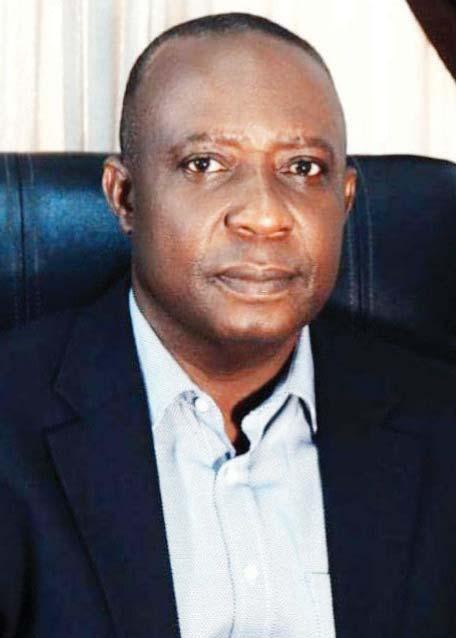
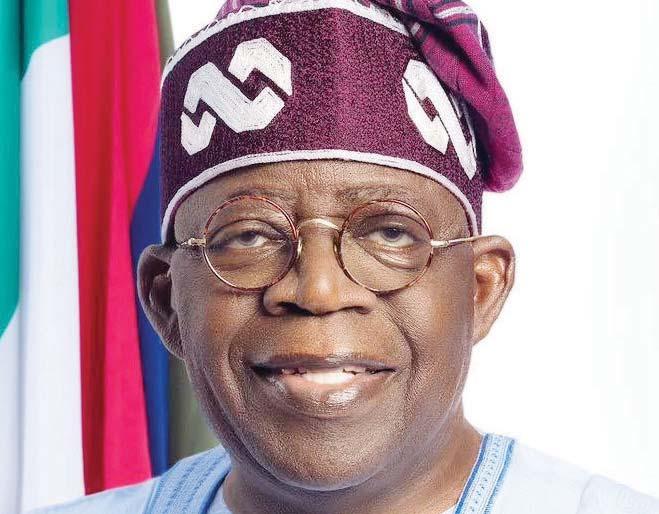
Four months later, the unions issued a notice to commence industrial action on Tuesday, October 3, 2023.
However, after a meeting called by the federal government reached certain agreements, the unions suspended the planned indefinite strike for 30 days.
In a development unrelated to wage demand, the two unions later ordered their affiliates to withdraw their services nationwide from midnight on Tuesday, November 14, 2023, to protest the battering of the NLC President, Ajaero, and some other executives of the congress in Owerri, Imo State, on November 1, as well as the pending labour issues in the state.
Ajaero was arrested by the police ahead of a state-wide protest in Imo State.
However, the NIC, sitting in Abuja, again, restrained the NLC, and the TUC from going ahead with their plan to embark on a nationwide strike action.
But the unions went ahead with the strike, which paralysed activities in the country for two days before the workers suspended it on the night of November 25, following the intervention of the National Security Adviser (NSA), Mallam Nuhu Ribadu.
After many months of protracted negotiations
over the new minimum wage, the unions gave an ultimatum of May 31, 2024.
Theunionshadinitiallydemandeda₦615,000 minimum wage.
However, they reduced it twice and now insisted on ₦494,000, while the government and the organised private sector had initially proposed ₦48,000 and ₦54,000, which were also rejected by the unions.
The federal government argued that the N494,000 was unsustainable as the wage bill cumulatively amounted to the sum of N9.5 trillion, which was capable of destabilising the economy and jeopardising the welfare of over 200 million Nigerians.
However, labour leaders have ignored government’s pleas, citing the jumbo salaries and emoluments of the members of the National Assembly and other elected and appointed political office holders.
Indeed, many other Nigerians believe that it is immoral for the government to continue to urge the citizens to make sacrifices and tighten their proverbial belts to reflect the dire economic situation of the country, while elected and appointed
officials continue to live extravagant lifestyles at the expense of the public treasury.
“Why are we scared when we say ‘pay a worker N1 million’ when those in the National Assembly are collecting N16 million, N17 million …N30 million? Why are we so discriminatory if we hear N1 million for a worker, when somebody can collect N16 million, N17 million for a job that is not even commensurate to the job a worker is doing? Why can’t a worker get N1 million in a situation where a bag full of naira can only buy a handful of goods?” NLC President, Ajaero had reportedly queried.
A former Senator from Kaduna State, Shehu Sani, who chaired the Senate Committee on Local and Foreign Debts, had in March 2018 revealed the jumbo pay of the federal lawmakers regarded as “hallowed secret”. Sani reportedly said he and his colleagues received N13.5 million monthly as running cost and N750,000 as basic salary.
The figures are believed to have since risen to about N29,479,749.00 monthly, as the previous federal lawmakers were in the habit of fixing their allowances arbitrarily.
This practice had prompted a former VicePresident of the Nigerian Bar Association (NBA), Mr. Monday Ubani to ask a Federal High Court sitting in Lagos to decide if the National Assembly had the right to arbitrarily fix its allowances.
And in what was described as a landmark judgment, Justice Chuka Obiozor ruled in June 2021 that it is illegal for the National Assembly to fix its own allowances.
Apart from earning jumbo salaries, elected officials also live luxurious lifestyles, riding on exotic SUVs and maintaining large convoys, which do not reflect the current economic realities.
A new report supported by BudgIT penultimate week had indicated that no fewer than 30 state governments of the federation spent N986.64billion on recurrent expenditures, including refreshments, sitting allowances, travelling, utilities, among others in the first three months of 2024, in a struggling economy where the citizens were asked to tighten their belts.
With the extravagant lifestyles of political office holders, it is difficult for the labour unions to back down on their persistent demands for what many Nigerians view as unstainable minimum wage.
For the Nigerian workers to make sacrifices, politicians holding public offices should demonstrate genuine commitment to lead by examples
The widespread condemnation of the spate of abduction of journalists in the country by security agencies, especially the Nigeria Police Force by the Nigerian Guild of Editors (NGE) is highly commendable.
Lately, the police and other agencies, under the guise of enforcing the Cyber Security Act, have abducted and detained a number of journalists instead deploying their arsenal to fight the terrorists and bandits decimating the country.
The consequence of such illegal actions on press freedom as enshrined in Section 22 of the 1999 Constitution, is frightening. When the Cyber Security Act was enacted, it was believed to be a legal framework for combating cybercrimes
but the police and the Nigerian Army have suddenly turned it to a legal instrument for persecuting journalists, who are performing their legitimate duties in a democracy.
The NGE, a professional body of media executives and senior editors, had in a recent statement by its President, Mr. Eze Anaba, and the General Secretary, Dr. Iyobosa Uwugiaren, condemned the method of abduction/arrest of journalists in recent months.
In the statement which was issued at the end of their Standing Committee meeting in Port Harcourt, they also kicked against the long detention and inhuman treatment they are subjected to, and said it was a negation of a democratic space.
In any case, what is Cyber Security Act anyway? How come it is only journalists that are often arrested? Was the law enacted specifically for journalists? Why is it that any story published to interrogate a politician is seen as cyber stalking? How come the Attorney General of the Federation and Minister of Justice, Mr. Lateef Fagbemi (SAN), is silent on this issue?
Press freedom is the ability of the media to report news and express opinion without government interference, censorship, or retribution. It is a fundamental human right essential for a healthy democracy, allowing citizens to access accurate information, hold leaders accountable, and participate in informed public discourse. Where a journalist runs foul of the law, it is certainly not abduction or illegal detention but should be charged to court.

The quantum of reservations and growing public disapproval of the Tinubu government has little or nothing to do with ideology. I am pretty sure that if anyoneeveraccusesMr.Tinubuofbeing anythingresemblingideological,hecould draw a pistol.Yet his unrelenting dismal job approval rating and increasing popularity deficit is the result of a fundamental ideological mix up.
The president would like to be popular, admired by the masses and praised by the elite. But his policies keep grating on ideas that make a leader popular. People do not want to pay more for fuel, electricity, essentialdrugsoramyriadoftaxes.Yetthesearethe basic essentials of theTinubu presidency for which he and his team want us to clap and sing their praises. It works the other way round.The more you subject us to suffering and poverty, the less popular you are likely to get. Yet, the crisis is not only Tinubu’s. It is that of his party or rather the way we have come to run our politics of nativity.
As a growing tradition, Nigerian politics attaches little or no importance to ideologies. The hints of ideology that appear in our party acronyms and names say nothing tour politicians or the public . It says nothing about who qualifies to join or control eachparty.Itsaysnothingabouttheprogrammesand policiesofthepartyevenwhenitdoescometopower. The acronyms are mere labels that distinguish one party from the other. And the parties themselves are merely vehicles on which politicians ride to fight for poweratelections.Thevastmajorityofpartymembers know nothing about the ideological implications of the labels of the parties they join or run on.
With luck, there may be a handful of party elite who dream up party names and use the ideological implications to craft a manifesto or party agenda for purposes of registration by INEC. Once registered, our parties proceed like renegades to wrestle and battleforpoweratstateandfederallevels.Politicians makepromisesandarticulateprogrammesthathave littlebearingtothenamesorideologicalhintsoftheir parties. Win the election first and be reminded of the name of the party and what its ideology, if any, means after inauguration day.
When it is time to take stock of party and governmentachievementsattheendofatenure,theNigerian public, even the elite, hardly judge our parties and governments by the implications of their ideologies. It is the personal stamp of the individual incumbent that is judged. It is the Obasanjo government, the Buhari administration, the Tinubu presidency that are at issue etc. Our subsequent elections become merely referendums on the individual whose imprint the departing administration carried.
If it is a PDP government that is in question, no one cares how “democratic” it was or how much it cared about the “people” implicated in the party name. If it is an APC government, no one asks whether its achievements were “progressive” or not.
And yet, political parties remain the bedrock and cornerstonesofeverydemocracy.Bytheirnature,they are carriers of ideological values by the very names theybear.Theselabelsarecarriersandembodiments ofcorebeliefsandvalues.Tothatextent,apartyought to “answer” its true name by maintaining a certain fidelity to its names and distinguishing ideological implications.
If you insist on being a “national” party as with the defunct National Party of Nigeria, we expect you to leave a legacy coloured by nationalism (“One Nation , One Destiny”). If you were the UPN of old, we expect you to be a beacon of “Unity” at least among your membership and the larger society if possible. In thesedaysoftheAPC,thePDPandtheLabourParty, weexpect“progressives”,“democrats”and“workers” interests to dominate our political discourse.
But sadly, the clashes among the three dominant parties for popular support is being waged about the credentials of Mr.Tinubu, Mr. Atiku and Mr. Obi. Our quarrelsarenotabouthow“progressive”thepolicies ofTinubu are or how democratic an Atiku presidency would have been or how much the interests of workers and youth would have been protected if Mr. Obi became president. Instead, we are embroiled in ugly street disputations about Mr.Tinubu’s controversial certificates,Atiku’smanyvacationhomesinDubaior Obi’s perennial black costume and Onitsha market wealth. InthespecificinstanceoftherulingAPC,something curious and more far reaching seems to have happened.Mr.Tinubuhaschasedawayalltheprogressive elements of the party either by confining them to the periphery or chasing them into political “exile” as it were. Many are now asking: where is Rotimi Amaechi in the present scheme of things in the party? Where is Yemi Osinbajo in all this? Where is Adams Oshiomhole in his unfolding drama? Why is
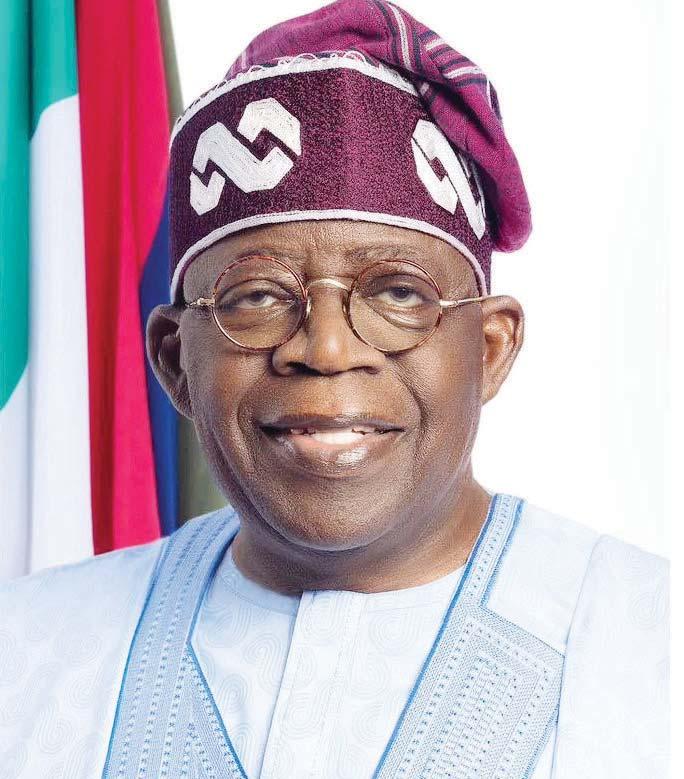
Tinubu
my friend Nasir El-Rufai being tormented for all the progressive policies he pursued in Kaduna? Where are all the progressive elements in the APC who fought to chase off Mr. Jonathan and enthrone Buhari? In contrast withTinubu, under Mr. Buhari, theAPCmanagedtobeaninclusiveamalgam of an ultra conservative president and his tribal cohorts surrounded by a mixed bag of “progressive” thinking leading lights with someconfusedrabbleofstate functionaries and party apparatchiks. Mr. Buhari could at leastworkwithstateprogressivegovernors and party leaders like Rotimi Amaechi,Vice President Yemi Osinbajo, party Chairman, Adams Oshiomhole and Governor Nasir El-Rufai.
These gentlemen were progressive in a loosely defined sense of advocating social democratic and modernist policies and programmes. They at least showing an abiding concern for the welfare of the ordinary citizen through broad based programmes. Osinbajo used his office as Vice President to administer credible popular empowerment programmes like Cash Transfers, Trader Money, Small Business Support Loan Scheme and instant relief for those in extreme vulnerability. Mr. Amaechi usedhisofficeasgovernorofRiversStateto build modern schools in which education up to secondary level was free. Children were supplied free school sandals and uniforms and primary health centres were multiplied and equipped with life saving devices and competentpersonnel.Oshiomholepursued similarpoliciesasgovernorofEdoStateand constantlyremindedAPCmembersoftheir commitment to the elements of progressivism as party Chairman. His trade union background came in handy here.
Rightly defined, Progressivism as a political movement and idea is a left of centre movement.Itscoreisacertaincommitment to social democratic principles. It is decidedlypro-commonpeopleandintheprocess advocates policies and programmes that enhance the welfare of the common folk. Access to the basic essentials of life is the corner stone of all progressive movements. Access to basic healthcare. Access to affordable popular education. Access to employment. Access to food security and
security of life and property.
These, as against the advocacy of the interests of the rich and big corporations, tax relief for the rich, the protection of big energy companies and massivetaxationofbasicgoodsandservices,would distinguish a progressive government from either a conservative or neo liberal pro-capitalist party. If indeed Buhari struggled with finding a middle path between these possibilities, President Bola Tinubu has had no problem with such a mixture. From the outset, he indicated a definitive option for conservatism and neo liberal capitalist policies. He chose Mr. Ganduje of the million dollar fame as party chairman. He opted for the famous Mr. Godswill Akpabio as Senate President and some other anonymousgentlemanasHouseSpeaker.Hehasalso chosen a mixed bag of Ministers with the imperial Nyesom Wike, David Umahi and his Lagos gang of WorldBankandIMFfriendlyCardosoandYemiEdun tomantheeconomy.TinubumaneuveredtheNational Assembly to ensure that the likes of Nasir El Rufai never neared his cabinet. It is also rumored that a former ally and progressive, Adams Oshiomhole, now needs special clearance to get an audience with the President in the Villa.
Almostlikeadeliberatepolicy,Mr.Tinubuhaskept the real progressives of the original party at bay. No one knows his exact relationship with Rotimi Amaechi who was a founding pillar of the APC and principal enabler of the Buhari presidency. Amaechi is by no means a small tangential fish in APC waters. Hecamesecondinthepresidentialprimarycongress that produced theTinubu ticket. In spite of sharing a commonSouthWestrootswithOsinbajo,Tinubuhas kept the former brilliant progressiveVice President at a distance. Not even the token emissary errands for which former vice presidents are famous!
In order to situate these developments and perhaps project on the future of the APC, we need to understand the major currents that produced the APC.
The APC was birthed out of Mr. Buhari’s resilient appetite for presidential power. Its victory in the 2015 presidential election was a product of both his regional cultic followership and a nationwide rejection of Mr. Jonathan’s bumbling presidency. Seven years afterwards, Buhari’s appetite for apex power has been fulfilled and arguably squandered. Hispetnativisthegemonicprojecthascomefullcycle and overreached itself. And as he begins to gather his belongings to return to the pastoral anonymity of Daura, his APC vehicle now has an existential challenge: how does it survive in and of itself as
a political party? How will it persist as a strategic national institution of democratic stability? Looking back, the coalition of parties that gave birth to the APC was an inconvenient marriage of political convenience.There was nothing in common between a pseudo social democratic ACN, an ultra conservative CPC, a nationalist right wing ANPP, an ethnonationalistAPGAandarenegadeopportunistic centrist NPDP.The cardinal objective was to cobble together a workable coalition to wrest power from the PDP after 16 monotonous years. The idea of a multiparty coalition eventually gave way to the even better idea of a single opposition party. Mr.Buharifacilitatedandgalvanizedthemarriage. He provided the amalgamation with a presidential mascot albeit one with a national name recognition. He also came dressed in an untested mythic garb of leadership prowess, governance prudence, barrack discipline and a reasonable level of personal integrity.Aboveall,hehadmanagedovertheyearsto build up a huge cultic following among the northern mob of rough uneducated and unemployed youth and regional power fanatics. Part of the motor park fable around Mr. Buhari was the infantile notion that once elected president, he would jail all the corrupt former government officials, recover the ill- gotten wealthandredistributesameamongthepoormasses. Thus was born a party tailored more towards wresting power from an effete incumbent than for the effective governance of a country in desperate needforresponsibleleadership. Giventhetenacityof Africanpowerincumbents,theAPCwasmorehoned for the task of contesting the outcome of the 2015 presidentialelectionpossiblyuptotheSupremeCourt. But when the results tumbled in mostly in its favour and Mr. Jonathan conceded defeat to Mr. Buhari, it wasanoverratedandunpreparedAPCthathadtoset up a government and ascend the pinnacle of national power. Victory came as a rude surprise with power as an unanticipated burden.Time has passed. Buhari hasfulfilledhislongstandingambitionofwearingthe toga of President. It is now time for the party to take stock of its stewardship and contemplate its future. Withthebenefitofhindsight,theemergenceofthe APC reinforced Nigeria’s historic tendency towards a credible two party architecture. To that extent, it wasapositivepoliticaloutcome,onewhichpromised a great dividend for Nigeria’s democracy. The new party came to power on the wave of expectations greater than its capacity and preparedness. However, theAPC’selectoralsuccessandstatureas the de facto dominant party in the land has raised far too many fundamental questions about the present state and future prospects of Nigerian democracy. Thecentralcuriosityremainsthatofhowapartywith a dismal record of governance in the last eight years can score such overwhelming electoral success. If democraticelectionsareindeedperiodictestsofthe popularity and acceptability of a party, the verdict of the Nigerian electorate in this last election deserves closer look. Questions indeed abound. Do electorates punish non- performing parties by denying them victory at the next election? Or, in the alternative, can a party, in spite of a dismal performance in government, still coast to victory at the next election irrespective of a massive popularity deficit? Is the electorate of registered voters a true representation of the popular wish at elections?Doestheelectoratehaveamind,amemory, like a person, that either punishes or rewards past experience in the hands of a political party and its elected officials? Finally, is the public of voters in a democracy an insensitive mob that returns a party to power even if its government has hurt the people badly and betrayed the public trust and devalued the good of the nation?
Mr.Tinubu may not choose a definite ideological label to find his way around the maze of Nigeria’s problems. But his outcomes sill be badged by ideology. Even in the absence of definable ideological differences in our politics, the challenges that define today’s Nigerian reality call for ideological clarity. We are drifting towards clear policy options that are ultimately ideological. Should we insist on obeying the IMF and World Bank by sinking more and more into unpayable debts? Or should we reduce waste, curb ostentation and instead invest our scarce resources in social welfare and empowerment of the majority. Should we save the nation or save the few rich oligarchs that our prodigal past has created?
Sooner or later, President Tinubu will have to choose between a reversion to the original progressive template of the party that put him in power and a tragic betrayal of that foundation. Either option is fraught with consequences. Without a clear choice, the president will be stranded at a critical junction in our national history.





“We are alarmed by the statement credited to the Nigeria Governors Forum that state governments cannot even afford to pay N60,000 as minimum wage as “a few states will end up borrowing to pay workers every month” – NLC describing the governors’ declaration made in the middle of an on-going negotiation as an act of bad faith.
The labour unions went on total strike on Monday, paralysing economic activities, stopping domestic flights and switching off the national power grid. The economic impact, especially on private businesses, are still being calculated. The Africa Association of Professional Freight Forwarders and Logistics of Nigeria (APFFLON) alone said over N200 billion was lost to demurrage and storage charges because of the lockdown. The losses may pass the N1 trillion mark when we factor in other sectors and subsectors, lost opportunities and the costs of running generators. The non-financial losses are usually difficult to estimate, like people missing visa or job interview appointments.
The strike was called by the unions to push for a new minimum wage. The current N30,000/ month was fixed in 2019, up from the N18,000 that was set in 2011. The unions pushed for N615,000 which it says is in consonance with the current economic realities, more so with the devaluation of the naira, the increase in petrol price and the attendant inflation. By implication, a cleaner or driver in the civil service and the organised private sector (OPS) will take home at least N615,000/ month. That also means salaries of workers on higher levels will have to be adjusted as well, even if not proportionately. That is quite an addition to the wage bills of government and companies.
After a lot of back and forth, the federal government has proposed N62,000 while the unions say they are now ready to accept N250,000. Governors are insisting that even N60,000 is unsustainable. Many states currently spend up to 70 percent of their income on wage bills. Doubling the wage bill will create a bigger hole in their finances. Some are not even paying the current N30,000 while many owe arrears. When wages are adjusted, there are other costs that come along, such as employers’ contributions to pension. Private companies are already struggling as a result of the double whammy of naira devaluation and sky-high energy costs, with many folding up or laying off workers to survive.
In truth, every one naira added to salary has implications, whether in the public or private sector. If a private company pays a fresh graduate N100,000, for instance, and now has to pay N250,000 to a cleaner as the unions are demanding, the salary of the graduate will have to move up as well and it cannot be N250,000. Give or take, the salary of the graduate will have to go up to way above the N250,000. Where is the income to pay? It is either the unions cannot be bothered by economic facts or they do not understand the math. If the union leaders will set up their own businesses and implement the wage rise they are advocating, then we can have a more productive debate.
In reality, even the public sector that is not run like a business cannot handle the proposed wage increase. Nigeria is permanently running on deficit which keeps increasing every year. We owe more than we can pay in the next 50 years, except there is another monumental oil boom from which we will actually benefit — not that we will spend the windfall to import subsidised petrol. We currently borrow to do most things. While naira devaluation has increased the bulk of revenue shared by the three tiers of government (because of exchange rate differentials), the benefits are being drained by deficit budgeting, debt repayments and inflation (and, yes, corruption and wasteful spending).
Am I saying minimum wage should not be increased because of the pallid state of public finance? No. I am saying Nigeria is not as rich as we assume. Agreed, if the waste and corruption in government can be reduced to a reasonable level, it will help significantly in creating room to accommodate a sensible adjustment to the minimum wage. Nevertheless, even if no kobo is stolen or wasted, Nigeria still does not earn enough to make everybody happy, just that
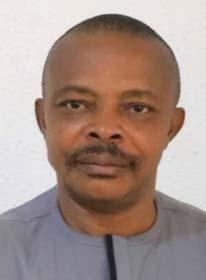
NLC President, Joe Ajaero waste and corruption have combined to worsen the sad reality. I do not think any worker should go home with that miserable N30,000 a month in these harsh times but there are many matters arising that we need to address as well.
One, it is wrong to say the average Nigerian worker takes home N30,000 a month. That is certainly not the average salary. It is the minimum allowed by law, applicable to the civil service and employers with a minimum of 25 workers. It does not apply to the informal sector, which employs an estimated 92 percent of the Nigerian work force. In a typical organisation or government agency, those on the N30,000 minimum wage are a tiny minority. Minimum wage is usually the starting point for those with the lowest qualifications. I know that we like exaggeration a lot in Nigeria, but there are facts we don’t need to sex up except we want to pursue the path of insincerity and deceit.
Two, someone said since Nigeria operates a federal system of government, every state should be allowed to fix the minimum wage it can afford — that there should be no national scale or compulsion. However, the power to set the minimum wage is exclusive to the federal government under Nigerian laws. In the US, states and municipalities can set their own minimum wage but it must be above the national scale set by the federal government. In Canada, provinces (that is, states) set their own minimum wage while the federal government only fixes for federally regulated employees. As I often argue, no two federalisms are the same: there is no true or fake federalism.
Three, I must necessarily touch on the dollarisation practice, which is not limited to the minimum wage debate alone. There is this widespread practice of converting the naira to the dollar to make an economic argument. There is a big case to be made for the need to improve wages but we don’t have to use the dollar analogy as is our wont. We say N30,000 is equal to $20 just to dramatise how poorly Nigerian workers are paid. Aside the high probability that most eligible workers earn more than N30,000/ month, there is something called “purchasing power parity” (PPP) used to calculate the absolute purchasing power of a currency rather than just benchmarking it against the dollar.
If we say our minimum wage is $20/month as against $7.25/hour in the US, it does not paint the complete picture. The question is: what can $1 buy in Nigeria compared to the US? That is the PPP. A crate of 12 brown eggs is N1,800 (about $2.67) in
Nigeria but goes for $6 (N9,000) in the US. A litre of petrol is roughly $1 (N1,500) over there, compared to N650 down here. A three-bedroom apartment in a medium income area of Atlanta goes for about $1,800/month (N2.7m) — probably a year’s rent in Ikeja, Lagos. Many Nigerians who recently relocated are complaining about the cost of living. The good thing, though, is the peace of mind — with no worries about kidnappers and NEPA.
Four, I suspect that what the unions want is a general wage review and not a review of the minimum wage as they have been saying. Minimum wage and wage review are conceptually different. Minimum wage is the lowest any mandated employer pays the lowest ranking employee. In the UK, it is set annually by the Low Pay Commission, an independent body of employers, unions and experts. It is a form of cost of living adjustment, aka COLA. In Nigeria, some companies implement COLA yearly as a percentage of wages. Wage review, on the other hand, is to improve the “quantum” of salaries across board, perhaps because an employer wants to be competitive or reward its staff.
My first suggestion, therefore, is that we need to address the minimum wage issue in a more scientific and predictable way so that all these strikes can be avoided. It should be routinely reviewed, like a yearly COLA, and proportionally related to the annualised inflation rate. The current five-year review period is too long because things are changing — and very fast. The National Salaries, Incomes and Wages Commission (NSIWC) has to revamp its tripartite arrangement involving the OPS, labour unions and the government, represented by the establishment department, to address this issue. Going forward, COLA should be a routine exercise without all this drama.
In the private sector, wages are reviewed regularly without fuss or headlines. Companies like Globacom, Nigeria Breweries, Dangote, BUA and banks constantly improve their minimum wage as well as implement wage review without strikes. I am sure MTN pays more than the current N30,000 minimum wage. There is typically an internal mechanism of collective bargaining with the local unions. It doesn’t have to be a major national event. We will only get to hear of it when there is a dispute that cannot be resolved internally. But anything that has to do with government in Nigeria must be chaotic. A major lesson from the latest crisis will be for us to revamp the tripartite arrangement so that there is consistent engagement and adjustments can be routinised. My second suggestion is that beyond the wages, we need a productive and befitting public service. In an average government office, whether state or federal, service is appalling. I once went to the Lagos state secretariat to process a document. They were busy watching African Magic. When the small fridge in the office was opened, I saw a bundle of fresh fish inside. Someone had brought fish to sell in the office. They did not care that an outsider was present. I had been told the officer in charge of my file was not around. I said I would wait. After wasting precious hours, I left. In some agencies, offices are empty by 2pm and on Fridays. You hardly miss those people when they are on strike.
That the Nigerian worker deserves better remuneration is indisputable. It is the quantum of the wage increase and the means to pay that we have to address in a systematic and sensible way. I admit that some civil service salaries are appalling. But we need a comprehensive reform of the entire system: get rid of the dead woods, do meritocratic recruitment and pay workers decent wages. Recruitment into civil service is usually political and that is heavily implicated in all these issues. The public service must be worth every kobo that we spend on it because it is the engine of government. Wage review is just one of the myriad of issues we need to address. We need to take a global look at the situation.


Nigerian judicial officers are about to hit a bonanza, with the senate passing the bill to increase their salaries and allowances by 300 percent. The bill is the baby of President Bola Tinubu. The chief justice of Nigeria (CJN) will earn N64 million annually when the bill is signed into law. I do not have anything against people getting good salaries, but I have been wondering about the implications for other branches of government. I will not be surprised if others are now asking for 300 percent pay rise. They will say: why judiciary alone? Why not us too? You may argue that the pay rise does not amount to much in the entire budget for the judiciary, but who has the time for maths? Trouble.
There is a disturbing trend which some people seem to be celebrating, particularly on social media: the killing of Nigerian soldiers. It is becoming a sport. Five soldiers were killed in Aba, Abia state, most recently while we were still trying to recover from the gruesome ambush and murder of 17 soldiers, including senior officers, in Okuama, Delta state, in March. Two soldiers were beaten up at the Banex Plaza in Abuja. These things were unthinkable decades ago but they are now commonplace. I agree that military involvement in civil conflicts has led to unpalatable consequences for both civilians and soldiers, but there still should be a line no one should cross. Alarming.
Nigerian policemen and women have been losing their lives to criminals and this really worries me. I do not know of any other African country where this happens so often. But there is even another major issue that the police must deal with urgently: sudden deaths. Abubakar Mohammed Guri, a deputy commissioner of police, slumped and died in his Abuja office on Monday. This is clearly a medical issue. Sudden deaths in the police, not limited to senior officers, have become regular. I read of them all the time. Does the force prioritise the health of its officers? Is there a policy for comprehensive checkups at least yearly? Mental health checks should also be a priority. Essential.
In the wake of the minimum wage war, the House of Representatives accused labour unions of spreading “persistent misinformation and disinformation” about the salaries of members of the National Assembly. “Organised labour has for years contributed to false narratives about the remuneration of members of the National Assembly, exaggerating figures to stoke public resentment and undermine the credibility of the Legislature,” the house said in a statement. “It is crucial for all parties to engage in an honest and transparent dialogue rather than resorting to the spread of inaccuracies for political leverage.” Still, no mention of how much they actually earn. Wonderful.